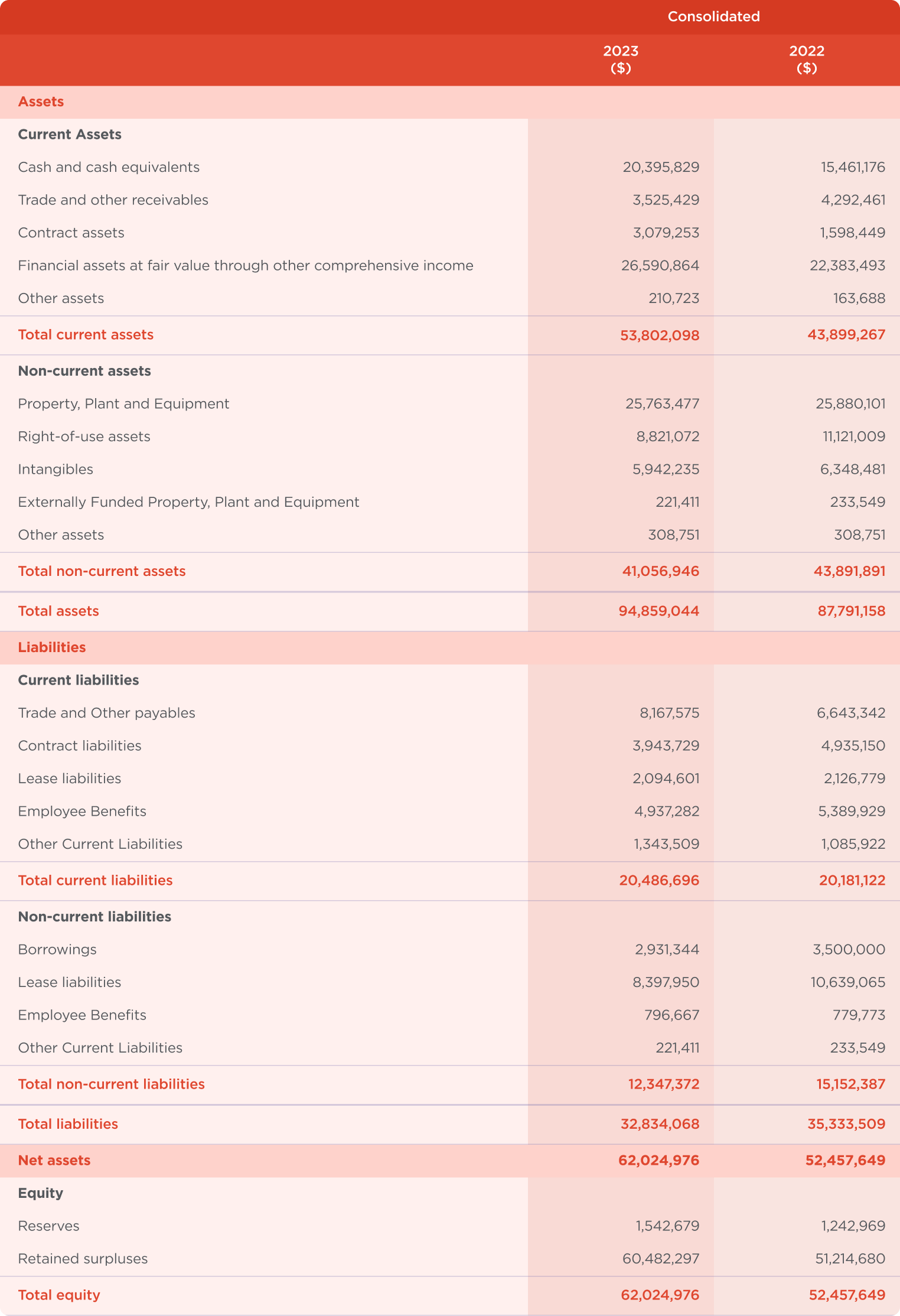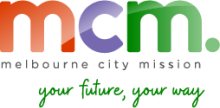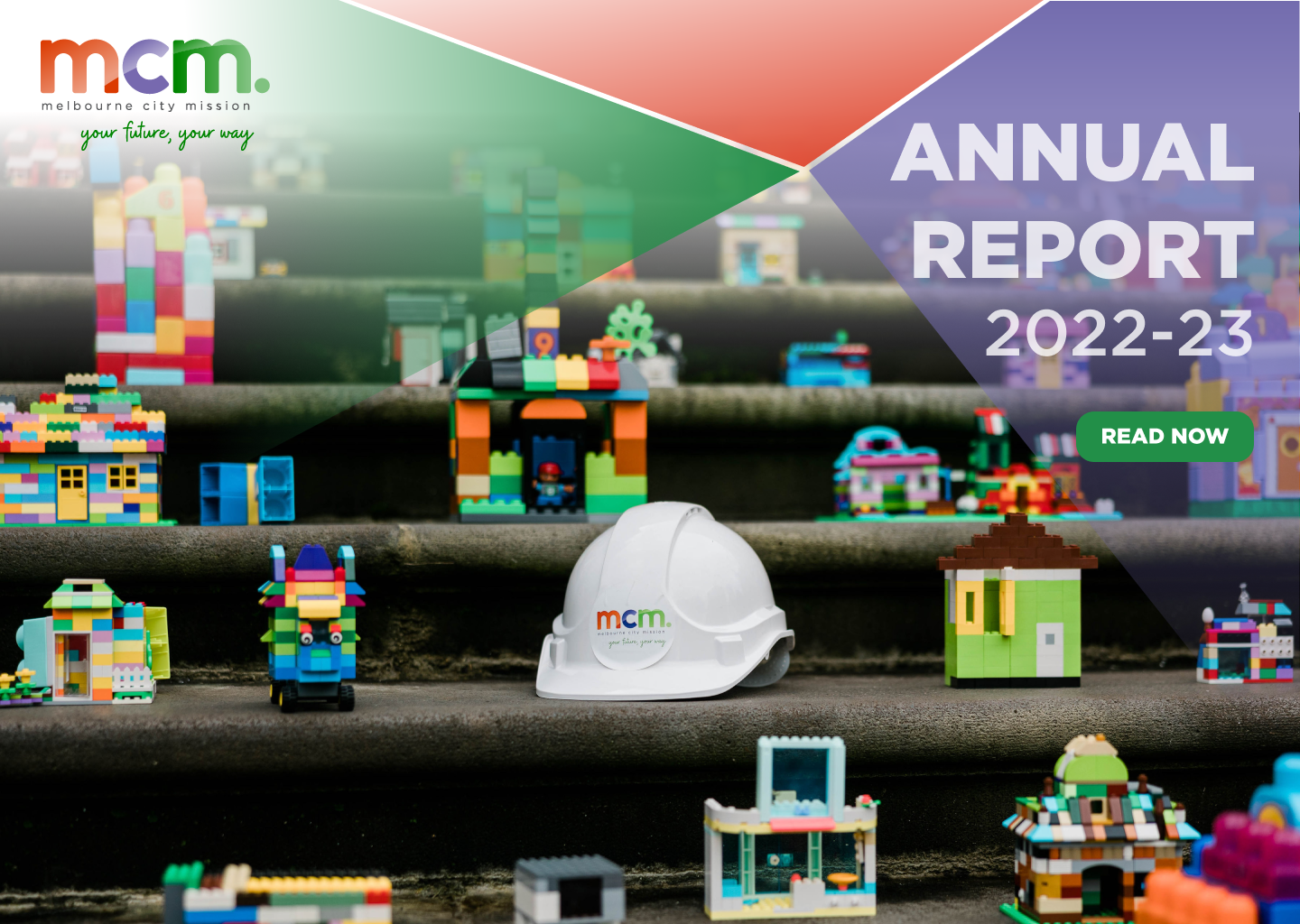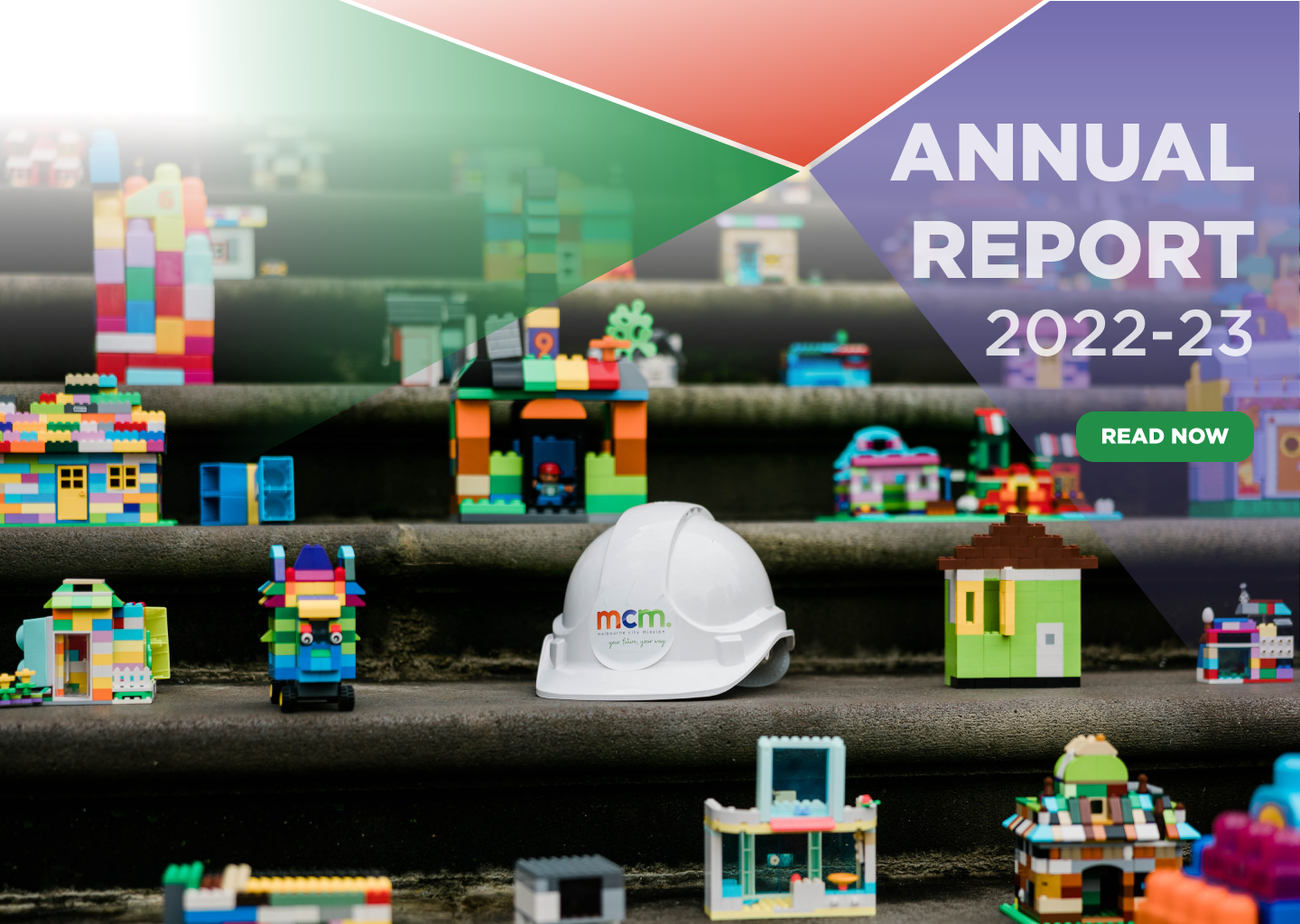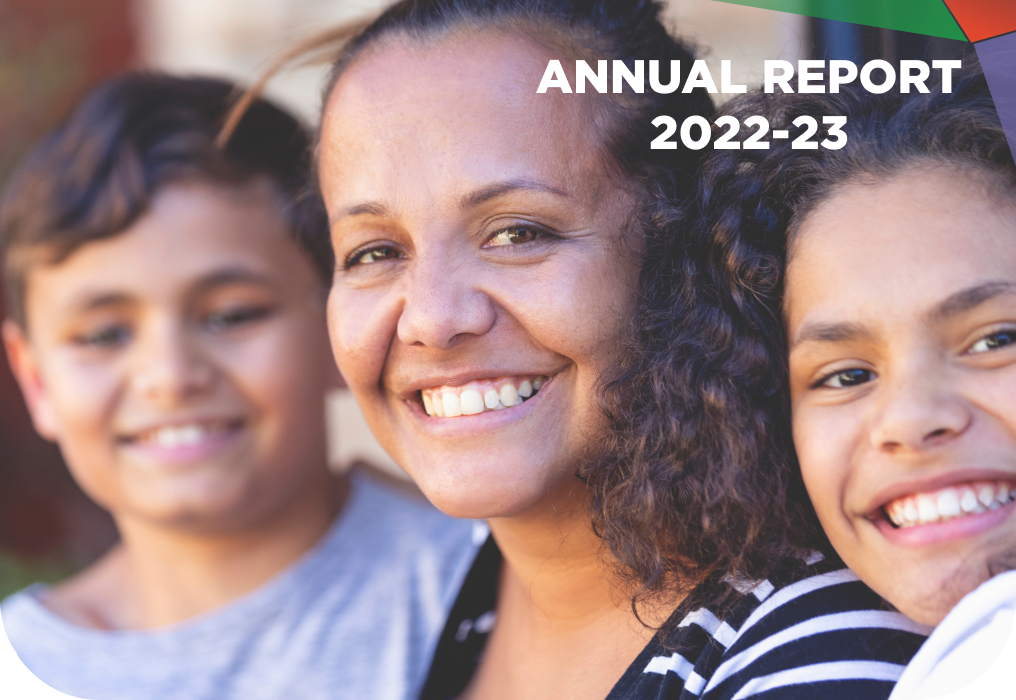
We are thrilled to present to you the MCM Annual Report 2022/23, marking our transition to an exclusively digital format.
Embracing this change, we bid farewell to the era of printing and distributing countless physical copies, opting instead for a path that champions sustainability and minimises our environmental impact. As you delve into this report, you’ll discover a wealth of information about MCM, including videos, infographics, and links to other content. Designed with your convenience in mind, it’s easily accessible on any device, empowering you to explore our achievements at your own pace and convenience.
MCM has had another year filled with significant achievements across all our service areas and programs, driven by our newly crafted five-year Strategic Plan 2023-2027. This roadmap serves as our compass, guiding us in our mission to empower individuals to carve out positive paths for themselves, so that they can live their lives, their way.
Our voice, resolute in its advocacy for those unable to speak out for themselves, only grows stronger with each passing day. Through our sector leading initiatives, impactful engagements in Canberra, and compelling public campaigns, we are breaking down barriers, unlocking opportunities, and expanding essential services and housing options for young people experiencing homelessness.
From nurturing children in their formative years to providing compassionate palliative care in the final stages of life, from tackling youth homelessness to building stable and safe youth housing solutions, and from delivering disability services to providing high school education for students who have not flourished in a traditional school setting – MCM’s diverse range of services is steadfast in its commitment to support people in Victoria experiencing disadvantage, putting them at the centre of everything we do.
Together, we’re disrupting the cycle of disadvantage, heralding a future where every individual has the opportunity to thrive. Join us on this transformative journey as we continue to make a meaningful difference in the lives of those we serve.
Acknowledgement of Country
MCM acknowledges the Traditional Owners of the waterways and lands where we work. We pay our respects to Elders past and present.
Respect of diversity
We commit to ensuring everyone we work with is safe, empowered, supported and respected, especially children and young people. We support and celebrate diversity of race, culture, ability, gender, sexuality and gender identity.

Our Purpose
We exist so that people can lead positive lives. We work with people at risk of poorer outcomes, and progression to greater and different forms of disadvantage. Our suite of services prevents and disrupts cycles of disadvantage throughout people’s lives.
Our Philosophy
We support people onto pathways to their best future, their way. We reduce risk and disrupt disadvantage. We work to break down barriers to positive lives.
We act urgently to make the most difference we can ‘now’.
Our Values
Together
- We are inclusive and accepting of difference
- We work in highly effective teams and our people are connected across our organisation
- We engage proactively with others to deliver outcomes
Courageous
- We speak up constructively in line with our convictions
- We pursue our goals with determination
- We are passionate about our advocacy role
Curious
- We are inquisitive and ask why
- We challenge the status quo
- We actively explore the alternatives
Open
- We are transparent and have genuine, honest interactions
- We listen and hear people’s voices
- We value and respect the autonomy of clients
- We trust one another
Accountable
- We act safely in all our interactions
- We manage within our financial and resource boundaries
- We own our outcomes and decisions
- We are proud of the work that we do


MCM Board
Our Board sets the foundation for our Purpose, Philosophy, and Values, providing strategic guidance, upholding governance standards, and ensuring that MCM optimises outcomes for every individual and community within our care.

Jonathan Mortimer
Chair

Marion Hemphill
Deputy Chair; Chair,
Board Nominations & Remuneration Committee; Board Member Quality Safety & Risk Committee

David Rennick
Chair
Quality Safety & Risk Committee

Sandra Brogden
Board Director

Stacey Ong
Board Member
Quality Safety &
Risk Committee

Lavania Parker
Board Member
Finance Investment & Audit Committee

Caroline Sheehan
Board Member
Nominations & Remuneration Committee

John Russell
Chair
Finance Investment & Audit Committee

John Jefferys
Board Member
Finance Investment & Audit Committee
MCM Executive Team
The executive team diligently translates the Board’s strategies into actionable plans, fostering collaboration among staff, volunteers, partners, and suppliers. This concerted effort ensures the seamless delivery of high-quality and effective services, programs, and solutions that support and empower individuals to lead their lives, their way.

Vicki Sutton
Chief Executive Officer

Marie Scotson
General Manager – People, Quality & Safety

Sean Spencer
General Manager – Operations, MCM Services Delivery

Andrew Sherri
General Manager – Corporate Services

Renae Johnston
General Manager – Philanthropy, Partnerships & Brand
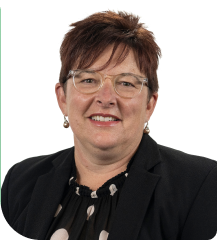
Sally Lasslett
Principal, Hester Hornbrook Academy
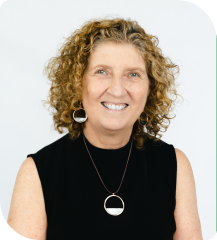
Lisa Dalla-Zuanna
Executive Officer, MCM Housing
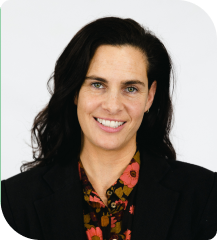
Shorna Moore
Head of Policy, Advocacy & Government Relations

Sam Barrett
Head of Social Innovation Programs
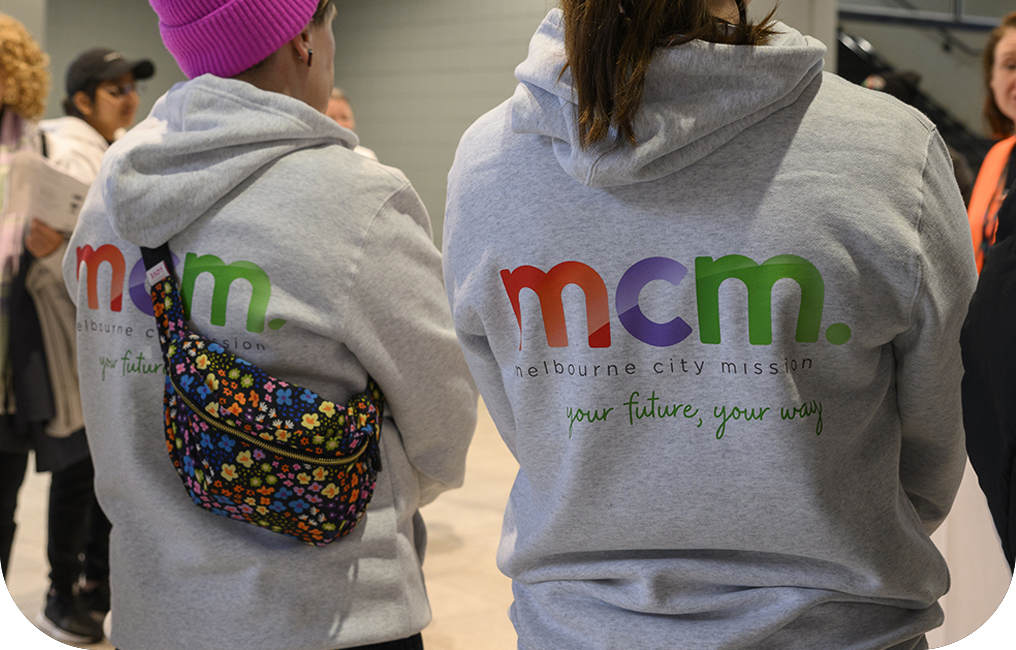
Board Chair and CEO Report
There is significant positive change happening at MCM. The Annual Report provides us with the opportunity to reflect on the incredible number of achievements we’ve had – all with the purpose of creating a better life for the individuals and families we support.
As you read through this report, you will quickly recognise that 2022/23 was a year full of projects, accomplishments, and milestones. These endevours collectively propel us closer to achieving our vision of building and supporting a healthy, resilient, and inclusive community.
We would like to make note of just some of the key highlights of the year:
- 2023 marked the initial phase of our new and transformative five-year strategy, “Possibilities. On.” Some significant building blocks have developed this year, which will fortify our efforts towards realising our ambitious goals in the years ahead. Noteworthy milestones include the implementation of a comprehensive Diversity, Equity and Inclusion Strategy, alongside the introduction of a Client Lived Experience Framework.
- We successfully rebooted the in-person version of Sleep At The ’G, following a three-year hiatus caused by unavoidable disruptions from the pandemic. Our flagship fundraising event saw over 850 people sleep overnight at the MCG. The event generated over $780,000 in donations, which has been used to acquire housing for the Youth Housing Initiative.
- MCM Services has expanded its scope through the introduction of pivotal programs. This includes the state-wide Disability Advisory Response Team (DART), offering assistance to children navigating the court system with potential unidentified disability needs. Additionally, the initiation of new family violence services, such as Restart and the Amplify pilot, has further broadened our offerings. We have also extended our family services support through the introduction of the Community Connector program.
- At the beginning of the year, Hester Hornbrook Academy celebrated the opening of its South Melbourne campus. We are also on the verge of commencing construction of our new Werribee campus, set to open its doors for the school year 2025. These collective endeavours reflect our commitment to providing diverse and enriching opportunities for the young people we support.
- MCM Housing proudly celebrated its second anniversary. In 2023, we commenced construction of properties for the Youth Housing Initiative, thanks to the backing of government grants and philanthropic support. These properties, offering 56 tenancies for young people, are slated for availability in early 2024.
- During 2023, our commitment to advocating for systemic improvement has remained steadfast. Leading a coalition of sector partners and peak bodies, we have developed a new national framework for youth housing. This initiative aims to address the systemic barriers that often result in young people being overlooked for long-term housing solutions. Our delegation to Canberra engaged with numerous politicians, including the Minister for Housing, passionately advocating to secure support for the proposed national youth housing framework.
- The Aged Care Volunteer Visitors Scheme was relaunched and expanded from 250 to almost 300 volunteers.
- The Palliative Care team received amazing feedback during their recent accreditation process.
Over the last year, as an organisation, we have made significant efforts to influence cultural change and improve the experience of our people, as outlined in our 5-year strategic plan. This includes our Diversity, Equity and Inclusion work; enhancing staff opportunities for Learning and Professional Development, and keeping our Healing Oriented Framework at the heart of our interactions with each other.
This has resulted in positive cultural change, and we see evidence of this in several places:
- The results of MCM’s Employee Experience survey indicate positive shifts in our culture and employee experience. This year’s survey showed that ‘Current engagement’ has risen from 61.5% to an impressive 72% since 2021.
- The staff feedback received from the Diversity Council of Australia Inclusion@Work Survey, showed that the perception of MCM Group as an inclusive employer increased markedly from 46% to 67%.
- Equally noteworthy is the 32% improvement in staff turnover, which is a key indicator of overall employee satisfaction.
These numbers are not mere statistics but a testament to the collective efforts of all our employees.
In closing, we extend our heartfelt gratitude to the dedicated members of the MCM, Hester Hornbrook Academy, and MCM Housing Boards for their unwavering stewardship, commitment, and invaluable guidance throughout the past twelve months.
We also recognise and express our thanks for the outstanding efforts of our highly capable and hard-working Executive and Management across the organisation. Fuelled by a strong sense of purpose and unity, these leaders continue to work collaboratively to bring our vision to fruition.
To our exceptional staff and volunteers, your dedication continues to be a tremendous source of inspiration. Your commitment to delivering dignified, high-quality care and support is truly commendable. Your approach to your work instills hope and confidence in the individuals and families we are privileged to support each day.
Last but not least, we would like to extend our deepest appreciation to our donors and corporate partners. Your continued generosity to support our services and programs has played an integral role in making a positive impact on the lives of those we serve. Your commitment to our cause is a driving force behind the success of our initiatives. You are creating meaningful change and contributing to our community.
Together, we have achieved remarkable milestones in the first year of our strategy. We are confident that the foundation we’ve laid for the first year of ‘Possibilities. On.‘ will keep us moving toward our goal to deliver healing-oriented, sector leading services that enable possibility for everyone.

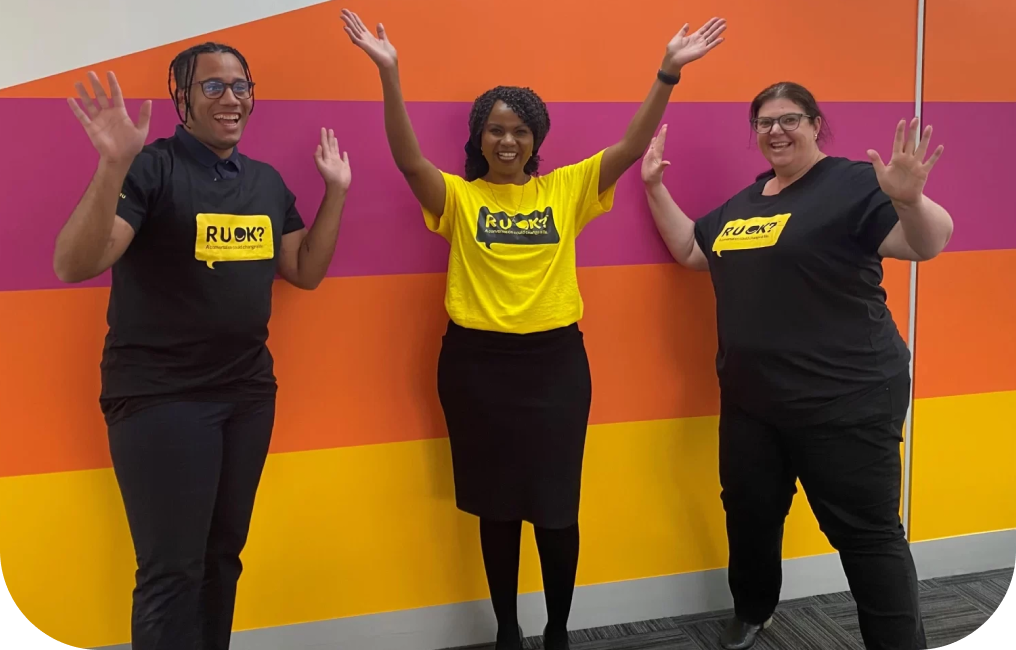
About MCM
Established in 1854, Melbourne City Mission (MCM) is one of Victoria’s oldest, largest and most diverse ‘for-purpose’ community service organisations. Our vision is to create a fair and just community where people have equitable access to opportunities and resources.
Today, the MCM Group, comprising MCM Services, Hester Hornbrook Academy, and MCM Housing work together to disrupt disadvantage and create positive change for Victoria’s most vulnerable individuals. We do this by helping people and communities develop their own pathways away from disadvantage so that those we support achieve their future, their way.
Through collaborative efforts, MCM strives to uplift and empower the most vulnerable and disadvantaged members of the community, offering comprehensive support through more than 80 programs, including homelessness, housing, disability, mental health, early childhood and secondary level education, child and family services, and palliative care.
Our focus is on creating new possibilities for children, young people, and adults experiencing disadvantage. We address the needs of the whole person through a holistic Healing Oriented Framework to drive lasting systematic change in their lives. Our services, presence, and advocacy efforts across Victoria continue to expand, exploring ways to dismantle barriers, address gaps, promote social justice, and foster equal opportunities for all.
5-Year Strategy: Possibilities. On.

MCM is committed to forging avenues of opportunity – pathways to possibility – for families, young people, and those in greatest need, aspiring to be a beacon of support and empowerment for all. We remain dedicated to expanding the positive influence our organisation has on the individuals and communities we serve.
Following the conclusion of our previous strategy in 2022, we embarked on a collaborative effort to formulate the MCM Strategy 2023-2027. This comprehensive plan is designed to steer our trajectory of positive impact growth for the next five years.
The MCM Strategy 2023-2027 articulates clear strategic goals, objectives, and measurable targets, serving as a blueprint for how MCM Group intends to amplify its positive impact by 2027. Its significance lies in its role as a guiding framework for high-level decision-making. Every decision made by the MCM Board and Executive is aligned with the pursuit of reaching our strategic targets, thereby influencing the direction of our organisational efforts.
These decisions, in turn, shape the initiatives we prioritise as an organisation, including fostering client lived experiences, enhancing workforce diversity and inclusion, expanding educational pathways for young people, and advocating for a robust youth housing system.
As MCM endeavours to maximise its positive impact in the coming five years, the MCM Strategy 2023-2027 stands as a constant compass and benchmark. It will continuously assess whether our organisation is attaining its aspirations to consistently enable, deliver, grow, and innovate pathways to possibility for everyone.


MCM Services
MCM stands as the premier government-funded provider of youth homelessness services in Victoria. Despite the effectiveness of our interventions, the issue of homelessness persists, presenting an ongoing dilemma. The stark reality is evidenced by recent statistics: on Census night in 2021, over 122,000 Australians were estimated to be experiencing homelessness. Even more concerning is the fact that nearly a quarter of this population—23% — is comprised of young people aged between 12 and 24, marking a troubling 15% surge since 2016. In Victoria alone, the 2021 Census revealed a distressing figure of 30,660 people experiencing homelessness on any given night. Among them, a staggering 7,600 are young people aged 12-24, a disheartening 19.7% increase since the last Census in 2016. Behind these numbers lies a sobering reality: housing stress has emerged as the fastest growing cause to homelessness. This burden disproportionately falls upon the shoulders of young Victorians, who, more often than not, find themselves renting, relocating frequently, and struggling with lower incomes and diminished wealth compared to the broader population. Amidst these challenges, MCM remains steadfast in its commitment to provide crucial support and advocacy for those affected by homelessness, striving to address the root causes and create pathways to stability for our youth.
3 Stages of Homelessness Support

Prevention and Early Intervention
We effectively deliver a range of programs working with young people at risk of homelessness to intervene early and prevent their potential transition to homelessness.
Programs include Detour, Creating Connections, Reconnect, Finding Solutions, Better Futures and Family Reconciliation Mediation Program.

Crisis
We expertly deliver the statewide access point for youth homelessness, Frontyard, which also acts as a one-stop-shop for youth homelessness support.
We are the leading provider of youth homelessness refuge rooms in Victoria, and provide homelessness refuge rooms for families.

Post Crisis and Transition to Independence
We professionally deliver longer term programs such as Circuit Breaker, Youth Foyers, Homelessness to a Home, and CIAO that support people to transition to independence following experiences with homelessness.
At a Glance
- 2467 people experiencing homelessness were supported by MCM
- Large decrease in average housing vulnerability for clients.
At the outset of our support process, we conduct a thorough assessment of individuals’ current housing situations. This assessment results in a housing vulnerability score out of five, with lower scores indicating better housing conditions. For instance, sleeping rough garners a score of four, while sleeping in private accommodation with family or partner scores a one.One notable trend we observe is a decrease in housing vulnerability scores over the course of our support. Essentially, prior to engaging with MCM, they often lacked a secure and safe place to sleep. However, with our support, they now have access to safer and more stable housing situations, resulting in lower vulnerability scores.On average, when individuals first seek support from MCM, their housing vulnerability score stands at 3.2 out of 4. Conversely, as they transition out of our support, this average score decreases significantly to 1.7 out of 4. This data highlights the positive impact our support has on enhancing the housing stability and security of those we assist. - 2.4% increase in improving the housing situation for clients through our support (10.4% to 12.8%)
- 80% of clients are working towards their support goals
Youth Housing Initiative
MCM’s Youth Housing Initiative (YHI) addresses a significant gap in the homelessness support services system for young people with medium to high support needs. Young people will be able to access the support services and long-term housing they need for their specific circumstances. Our innovative model centres on a young person’s changing support and housing needs.
YHI is a 4-year integrated support and housing program that aims to assist young people effectively transition to adulthood and permanently exit homelessness with significant personal and economic benefits. The program builds the independence, confidence, and resilience of young people to address the complex personal and structural causes of their homelessness over a sustained support period. This includes embedding therapeutic support strategies to address trauma and promote healing and recovery.
The YHI was co-designed with young people with lived experience of homelessness and housing insecurity to identify gaps in the current approach and their impact on individuals. These insights, plus the observations of MCM’s frontline staff, and research across the housing and services sectors, shaped the development of the YHI.
MCM engaged the services of Social Ventures Australia to analyse the financial costs of the program, based on outcomes metrics, against the expected fiscal savings to the government. Monash University will gather evidence about the impact of the program and the significant economic, community, and individual benefits. This evidence will be shared and form the cornerstone to significantly scale up this model, thereby driving lasting growth and systemic change to a need with a solution.
In 2023 we entered the program delivery phase, building the program assets and employing team members.
“I tried to get help from all kinds of services, but a safe home just wasn’t an option. I was 18, scared and completely alone.”
“When I was 16, I found myself sleeping in an emergency hospital bed because I had nowhere else to stay. There are no suitable, long term or safe housing options for the current youth of Australia.”
“The most vulnerable young people are going into adult crisis accommodation just hoping they live long enough to find something better but there is nothing better for us.”
Homelessness and Family Violence
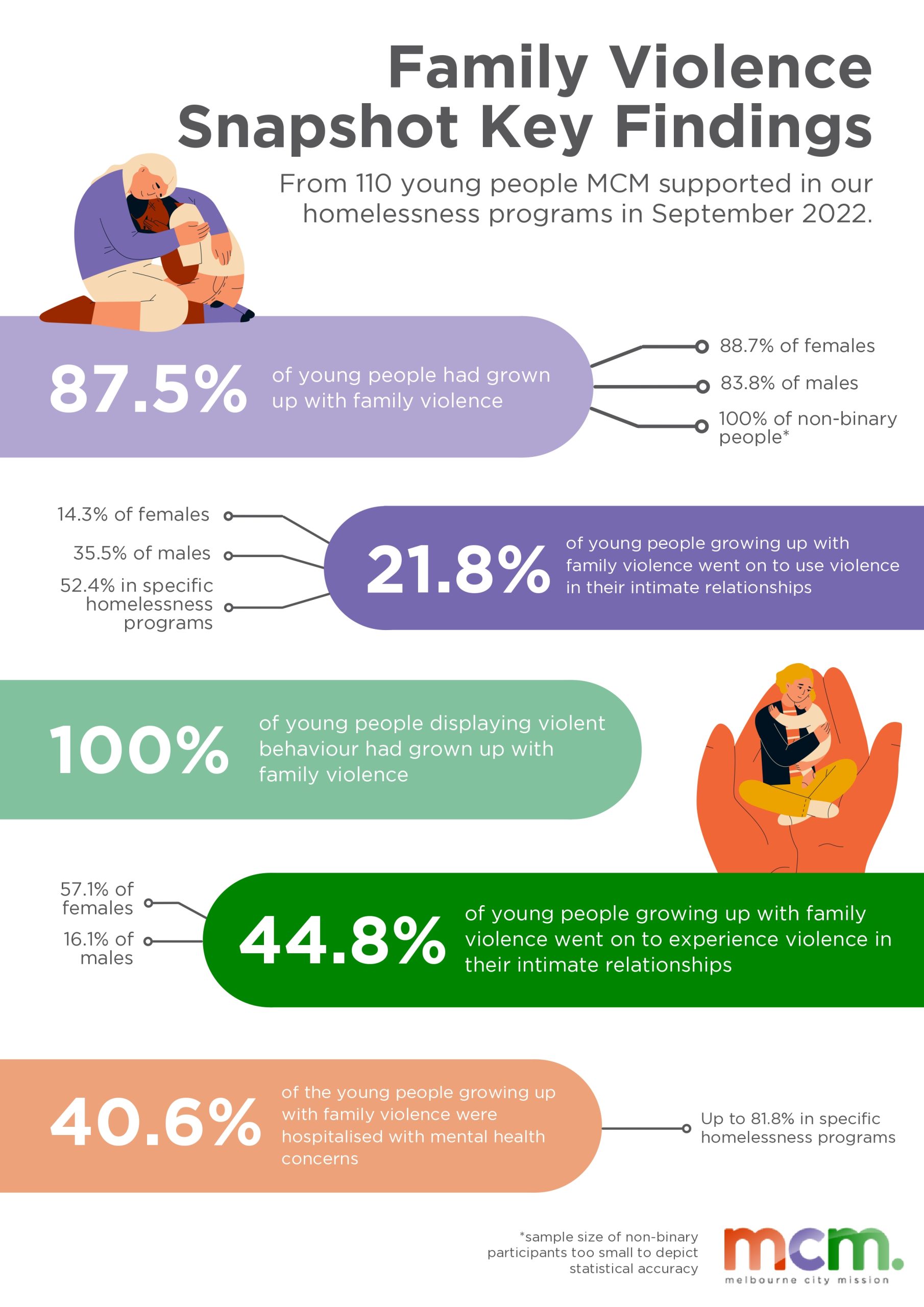
Youth homelessness in Australia has continued to grow in recent years and yet it remains a problem largely invisible to the wider community. While some young people are sleeping rough, many others are ‘couch surfing’ or having to rely on crisis accommodation or rooming houses and their plight is often hidden from view.
The young people seeking support from Frontyard Youth Services face enormous challenges with a wide range of issues from family conflict, violence, mental health, substance abuse and financial stress. Each of these issues can exacerbate the difficulties in obtaining affordable housing and living independently without the support of family.
Young people experiencing homelessness have just as many hopes, dreams and aspirations as any other young person but may not be fortunate enough to have as many opportunities. The work Frontyard undertakes daily seeks to rectify this by providing pathways that lead away from homelessness.
- Frontyard were able to provide different services and supports to 12,451 individuals over the year.
- Frontyard’s Case Management teams provided 261 separate occasions of individual planned support services to young people experiencing homelessness, to assist them with a tailored plan to prevent or exit homelessness.
- The enhanced Check-In Community Mental Health program, in its first month, has seen a significant impact to the capacity of Frontyard’s integrated service model in being able to work with young people experiencing complex mental ill-health in addition to homelessness and other co-occurring complexities. In the first month, there were 81 activities recorded with young people. A range of expertise including specialised Mental Health Peer Workers, Care Coordinators and Mental Health Occupational Therapists has bolstered outcomes for young people.
- The need for an enhanced program like Check-In is reflected in the following data:
- 94% engaged in/presented using unhealthy emotional regulation strategies
- 88% presented with a history of developmental trauma
- 88% presented with an impaired ability to function across multiple life domains
- 81% presented with reoccurring homelessness
- 50% sought support to discuss diagnosed or undiagnosed mental ill-health
- 44% presented with a pattern of harmful use of alcohol or other drugs
- 38% presented with neurodiversity
- 31% presented with an Acquired Brain Injury and/or Intellectual Disability
- 19% disclosed of a forensic history and/or pattern of offending behaviour
- Youth peer workers have been instrumental in delivering impactful support to young people as they navigate through integrated service delivery at Frontyard. Their contributions extend across various facets of MCM, including the Lived Experience Framework, Advocacy, Youth Housing Initiative, Orygen Consults, and events such as Sleep At The ’G.
- Circuit Breaker Youth Refuge is co-located and part of the integrated Frontyard. The service delivered 510 accommodation support periods, providing young people experiencing homelessness a range of short and longer-term safe, secure and affordable temporary housing in the CBD to meet their immediate and long-term goals.
- The Youth and Community Participation team had 262 young people participate in meaningful programs at Frontyard, which included 95 diverse support activities covering life skills, health, wellbeing, and sports/recreation. The team also facilitated participation in 14 community events.
At a Glance

2627

9916

969

745

$149,104
Client Demographics

MCM supports many young people who experience mental health challenges alongside other complex life issues such as homelessness, family violence and breakdown, disability, medical illnesses and addictions. Additionally, many struggle to access specialist mental health care due to the intricate nature of their situations, often falling through the cracks between service systems.
At the core of our services lies trauma-informed mental health care and support. This approach offers both practical and emotional support to people experiencing mental distress. Our methods are shaped by our Healing Orientated Framework, which educates all members of our organisation on how trauma can influence and shape a person’s coping mechanism and diminish their ability to manage stress effectively. Embracing this framework allows us to adopt a comprehensive view of the people we serve, understanding their needs and devising more effective strategies to aid their recovery.
Mental Health Snapshot Key Findings
During the year, data was collected from 54 young people aged 14-24 years who resided in MCM homelessness accommodation programs on 30 March 2023.
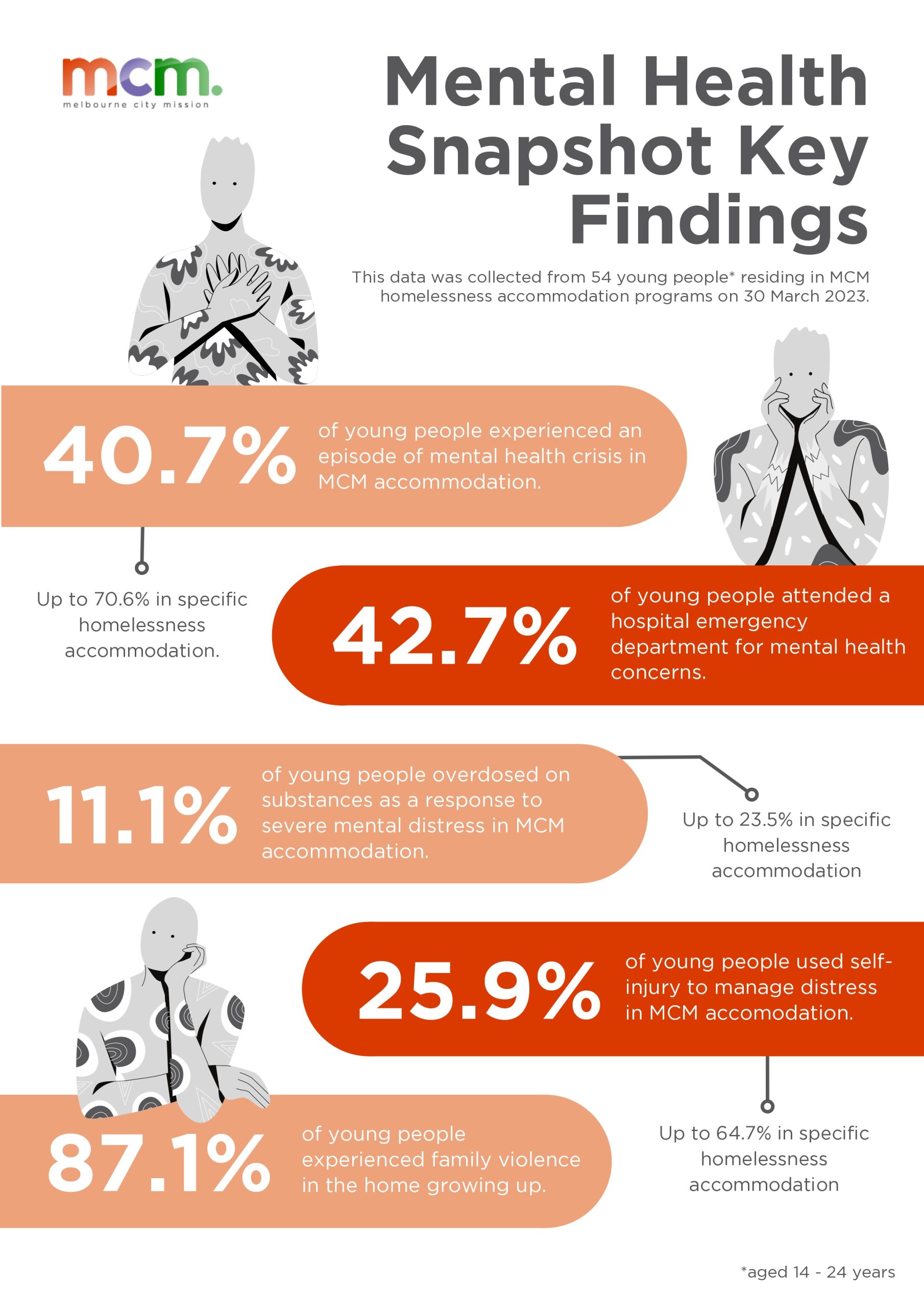
Evidence shows that young people need less mental health support once they find secure, supported housing. Data shows that over 12 months of living in MCM Youth Foyers, young people’s vulnerability and support needs, including mental health support, reduced by more than half (52%).
Community Friend Program
The volunteer-based Community Friend Program provides one-on-one or group support to participants living with a disability in the eastern and northern regions of Melbourne. The program breaks down social isolation, and encourages community participation. After consultation with the Department of Families, Fairness and Housing, MCM identified a need for this service to expand into the Brimbank and Melton regions.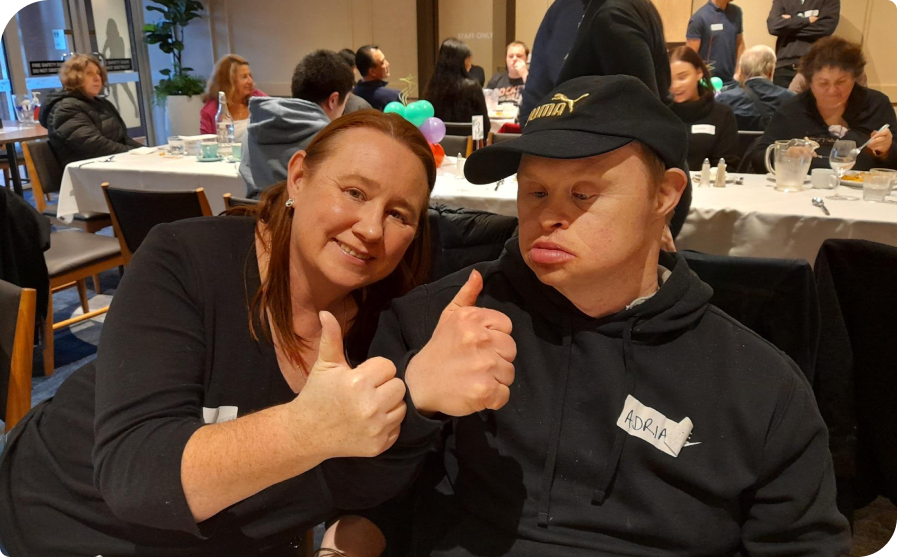
Recovery Coach
The Recovery Coach program offers vital support for people living with a diagnosis of psychosocial disability – that can profoundly affect their daily functioning and community engagement. Since its inception in 2021, the Recovery Coach program has been a beacon of hope for many. Recognising the escalating demand for mental health support, particularly in Werribee and Bendigo, we responded swiftly to the pressing needs of these communities. Driven by our unwavering commitment to serving those in need, we expanded our reach, bridging the gap between individuals and the critical support they require. With an expanded presence in Werribee and Bendigo, we aim to provide a lifeline for individuals navigating the complexities of psychosocial disabilities, offering guidance, encouragement, and practical assistance.Measuring Outcomes in Our Work
The Australian Government’s Outcomes Framework, a pivotal component of Australia’s Disability Strategy 2021-2031, is integral to the overarching plan aimed at enhancing the lives of people living with a disability. This framework is dedicated to measuring, tracking, and reporting on the progress and improvements experienced by people living with a disability. Central to promoting wellbeing is the concept of outcome-focused support planning. By prioritising effective outcome-focused support planning, we strive to empower individuals by enhancing their independence, health, and overall wellbeing. This approach not only aims to provide individuals with more choice and control over the support they receive but also fosters a sense of ownership and autonomy in their lives. During the year, MCM has undertaken significant efforts to enhance our methods of capturing and reporting the progress made by clients towards their goals with our support.Support Coordination
As a key component of a broader organisational initiative, our Support Coordination team has meticulously enhanced our approach to recording participant goals, developing corresponding strategies, and measuring progress through a year-long project, including system redesign. We are delighted that we can now provide participants with comprehensive reports, incorporating numerical, visual, and anecdotal insights into the strides they have achieved through their engagement with us. This multifaceted reporting approach ensures that clients receive a detailed understanding of their progress and the impact of our support services. It is extremely pleasing to report that one hundred percent of participants reported progress towards their goals.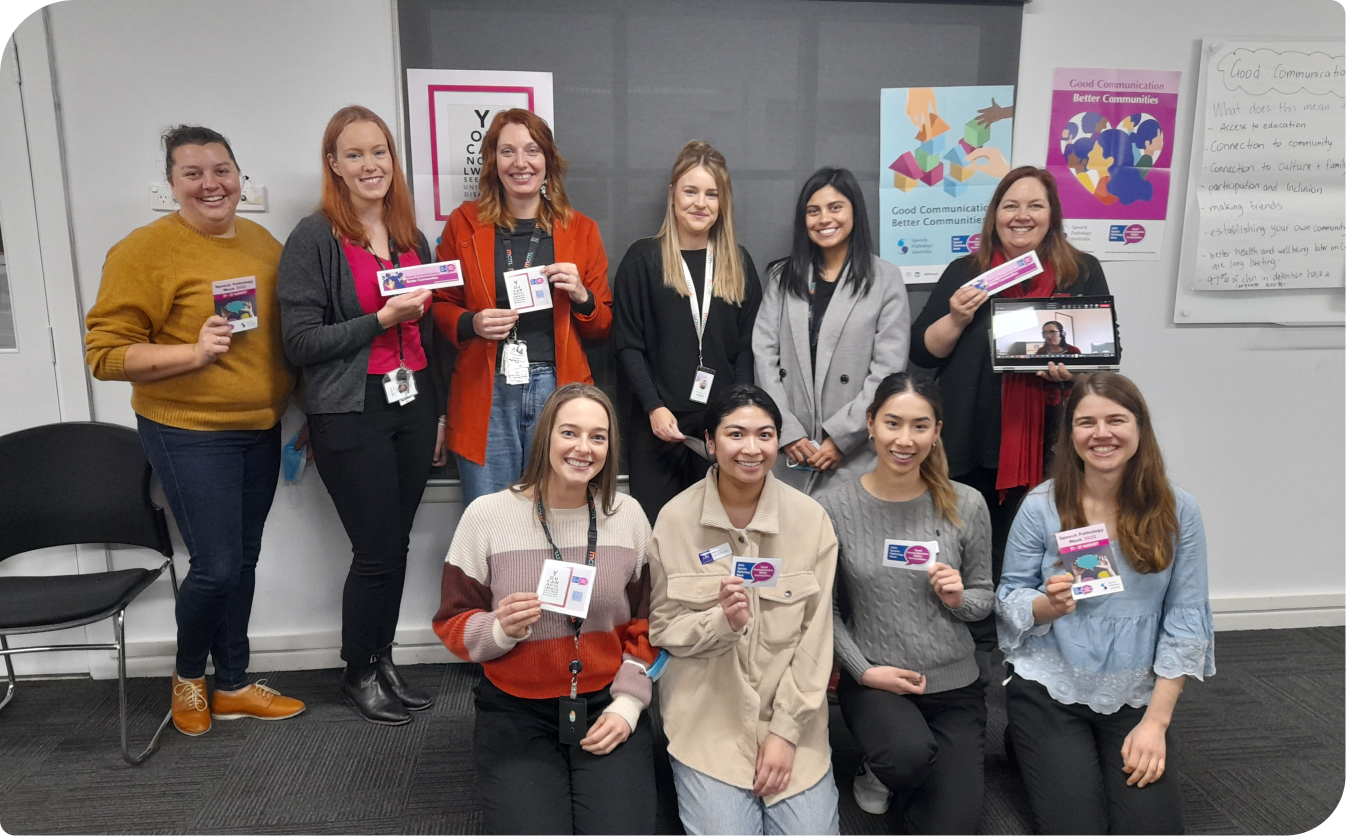
Early Childhood Intervention Service
Our Early Childhood Intervention Service (ECIS) offers children with disability or developmental delay and their families opportunities to learn and grow together. We take a whole-child approach and provide access to experienced allied health and specialist early childhood teachers and group programs to provide support in our best-practice early intervention model. We have experienced several highlights this year, which include:- ECIS expanded regionally into Bendigo, with our first team member located there.
- The Autism Assessment Program has been expanded, with the addition of trained team members enabling us to assess a greater number of children. Previously limited to monthly assessments, our enhanced capacity now allows us to conduct assessments on a weekly basis. This expansion in staff and resources has facilitated extensive training within our team, thereby bolstering our ability to cater to the needs of more children seeking assessment and support.
- ECIS introduced new parent programs focusing on behaviour management and relationships, and language development. Feedback from parents has been very positive. These programs are focused on upskilling parents through two separate components:
- Circle of Security behavioural management
- The Hanen Program – A program from Canada which focuses on language development in children.
- ECIS partnered with Melbourne University and Greensborough Rotary to deliver complimentary hearing and vision screening tests for preschoolers. Approximatley 100 children participated in the screenings, leading to the identification of a cohort requiring further testing. Early detection of such concerns is crucial for timely intervention. This collaborative effort has proven successful, prompting us to integrate these screenings more frequently throughout the year, ensuring proactive monitoring of children’s auditory and visual health.
- ECIS and Support Coordination continued to expand their relationships with Victoria University, Monash University and Melbourne University, working with placement coordinators, and participated in guest lecture sessions. ECIS promoted the Key Worker model and support coordination upskilled on the NDIS.
- ECIS continued their partnership with Early Childhood Management Services, mentoring and training teachers and educators in their services. Two team members worked with 60 services delivering 800 hours of training to 106 attendees, created ten YouTube recordings, and developed 300 resources for teams to use.
- ECIS forged a meaningful partnership with Bubup Wilam Aboriginal Child and Family Centre in Thomastown to deliver occupational therapy services to children and families in their service. This collaboration underscores MCM’s commitment to ensuring that First Nations children receive the highest quality support for a promising start in life.
- ECIS hosted ten therapy student placements with students coming from five different universities.
Strengthening Parent Support Program
The Strengthening Parent Support Program, (SPSP) funded by Department of Families, Fairness and Housing, provides support to families who have a child with a disability or developmental delay. Families can receive individualised support or participate in one of the support groups facilitated by volunteers, under the oversight of MCM’s coordinator. During the year, the program provided support to 3009 families.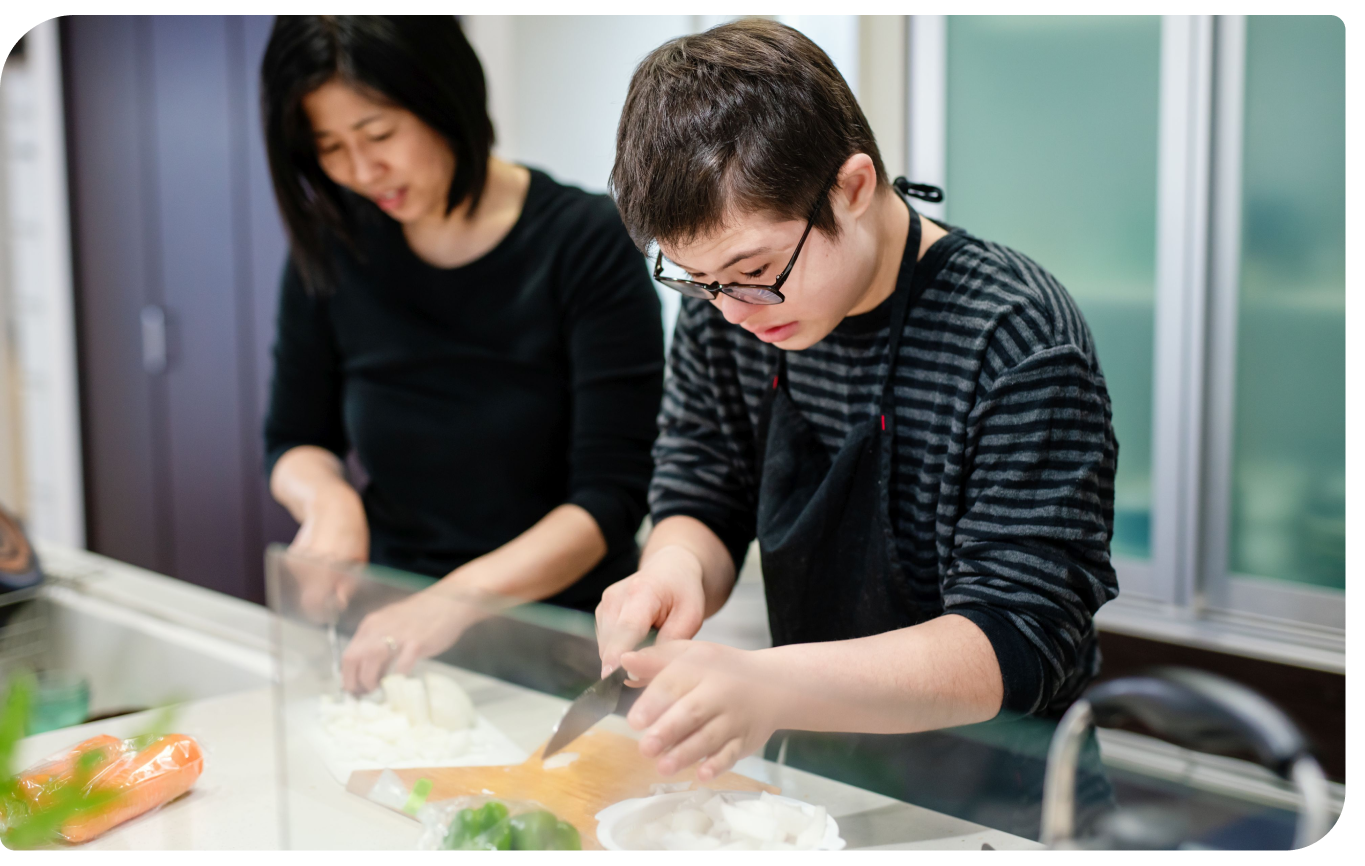
Short-term Accommodation
B Street is a four-bedroom, short-term accommodation house, with specialised support for complex behaviours for 6-18 year olds living with a disability. This year, 751 nights of high-needs support was delivered to children at B Street, while their families had a much-needed break. This testimonial from a parent is a typical example of why short-term accommodation is beneficial for the child and the carer.“My son Kai has been attending B Street respite house monthly. He enjoys being away from home and learning some important life skills as a teenage boy. Every time I mention to him that he is going to B Street this week, his face literally lights up. I can tell that Kai feels very safe and comfortable staying at B Street. As a sole parent and carer, having a reliable respite support like B Street makes such a difference in our lives and it really helps me cope with my carer role. I would like to thank all the staff at B Street house for their care and support, and for helping my son grow and learn.” – Maiko, Parent of Kai.
Participant Survey Results
In our annual participant surveys, all programs reported overwhelmingly positive experiences, with participants expressing a profound sense of support, highlighting the widespread satisfaction and appreciation for the services received.Staff Engagement Survey Results
- 95% said their manager genuinely cares about their safety
- 86% said they would recommend MCM as a great place to work
- 85% said they feel a valued member of the team
- 82% said MCM allows us to make a positive difference
- 81% said they were happy with their current role
- 80% said they know how much their work contributes to the goals of MCM
Linda Moves Into Her New Home
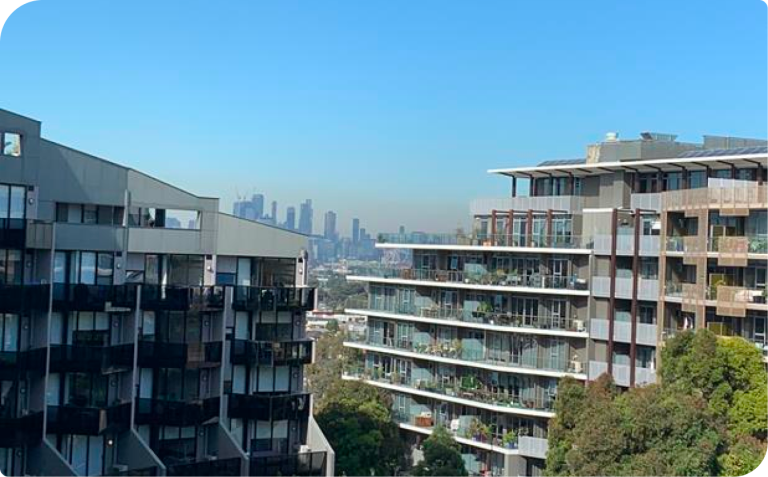 Liz Newland, a dedicated Support Coordinator with the MCM Disability team, shares a bond spanning 13 years with her client, Linda. For Linda, Liz isn’t just a coordinator; she’s a lifeline, a steadfast companion in navigating life’s complexities.
Linda’s path to securing accessible and affordable housing has been fraught with hurdles. With assistance around NDIS processes and some moral support from Liz, Linda was able to tackle the obstacles along the way. Their journey together, however, was far from smooth sailing. Following a fall in 2008, Linda, previously independent despite living with a physical disability, found herself reliant on support for everyday tasks. COVID-induced delays, rocky family relationships, and the arduous quest for suitable housing all tested their resolve. Yet, through it all, Liz’s unwavering support and Linda’s indomitable spirit prevailed. With Liz’s invaluable assistance and the aid of the Summer Foundation, Linda finally found herself stepping into her own single-bedroom home in Maribyrnong. “It has all worked out and I am happy here and have more privacy in my own home,” Linda said. “The view is great, and I now have a home of my own. If it wasn’t for Liz and her moral support, I would never have made it through my melt down moments. She was my go-to, my voice of reason”.
Liz Newland, a dedicated Support Coordinator with the MCM Disability team, shares a bond spanning 13 years with her client, Linda. For Linda, Liz isn’t just a coordinator; she’s a lifeline, a steadfast companion in navigating life’s complexities.
Linda’s path to securing accessible and affordable housing has been fraught with hurdles. With assistance around NDIS processes and some moral support from Liz, Linda was able to tackle the obstacles along the way. Their journey together, however, was far from smooth sailing. Following a fall in 2008, Linda, previously independent despite living with a physical disability, found herself reliant on support for everyday tasks. COVID-induced delays, rocky family relationships, and the arduous quest for suitable housing all tested their resolve. Yet, through it all, Liz’s unwavering support and Linda’s indomitable spirit prevailed. With Liz’s invaluable assistance and the aid of the Summer Foundation, Linda finally found herself stepping into her own single-bedroom home in Maribyrnong. “It has all worked out and I am happy here and have more privacy in my own home,” Linda said. “The view is great, and I now have a home of my own. If it wasn’t for Liz and her moral support, I would never have made it through my melt down moments. She was my go-to, my voice of reason”.MCM Palliative Care (MCMPC) provides a comprehensive range of nursing, medical, allied health, and consulting services aimed at enhancing the quality of life for individuals facing life-limiting illnesses. Our commitment extends beyond the individual, offering invaluable support through the grieving process for those who have lost a loved one.
Established in 1981 as the pioneer community-based modern palliative care service in Victoria, MCMPC has played a pivotal role in elevating the recognition of palliative care as a viable end-of-life option for Victorians. Our dedicated team remains unwavering in their mission, consistently delivering dignified and compassionate care, even in the face of formidable challenges such as the pandemic and associated lockdowns.
PalCare Go Project
MCMPC has seamlessly integrated the PalCare Go Project’s clinical delivery phase into its standard operating practice, marking a successful transition. This initiative not only expands our service delivery methods but also ensures that individuals receive tailored care in alignment with their unique needs. Notably, the program places a heightened emphasis on catering to clients with chronic non-malignant diseases, a demographic that has historically faced challenges in health service integration.
Formal data collection and analysis, in conjunction with Monash University, has determined the telehealth project to be an effective and efficient strategy for palliative care as part of the suite of service delivery options.
Implementation of the Afternoon Shift
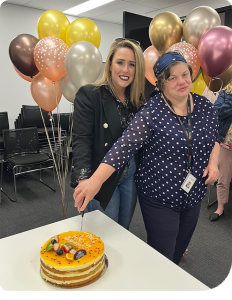
Acknowledging a rising demand for service provision and a growing preference among clients for end-of-life care in the comfort of their own homes, we have identified late afternoon and early evening visitation as a pivotal strategy to enhance the quality of our service delivery. The introduction of an afternoon visitation protocol has proven instrumental in facilitating prompt and effective responses to new or emerging client concerns. Additionally, it has allowed for timely return visits to clients in the terminal phase of care, providing valuable professional support and reassurance to alleviate distress.
Furthermore, this shift has exerted a broader impact on the health system by diminishing avoidable hospital presentations, reducing reliance on Ambulance Victoria, and minimizing the need for locum doctor services. This ripple effect not only underscores the efficiency of our approach but also contributes to the overall optimisation of healthcare resources, fostering a more streamlined and sustainable healthcare ecosystem.
Palliative Care Outcomes Collaboration (PCOC) July–Dec 2022
In the July-Dec 2022 report, the Palliative Care Outcomes Collaboration (PCOC) recognised MCM Palliative Care’s outstanding performance, meeting an impressive 14 out of 20 client outcome benchmarks. This accomplishment positions MCMPC among the top three performing Community Palliative Services in the nation, showcasing our commitment to delivering exceptional results for our clients. Notably, this places us well above the national average for community-based services, where only six out of 20 benchmarks are typically met.
Moreover, the report’s findings for clients residing in residential aged care facilities were exceptional, achieving a perfect score of 15 out of 15 benchmarks. The PCOC team specifically acknowledged, “This highlights the exquisite care you provide to aged care residents and demonstrates the benefit of specialist palliative care in aged care.” These remarkable outcomes not only underscores our unwavering commitment to delivering outstanding palliative care, but also emphasises the profound positive impact of specialised palliative care within the aged care setting.
40+1 Years Young

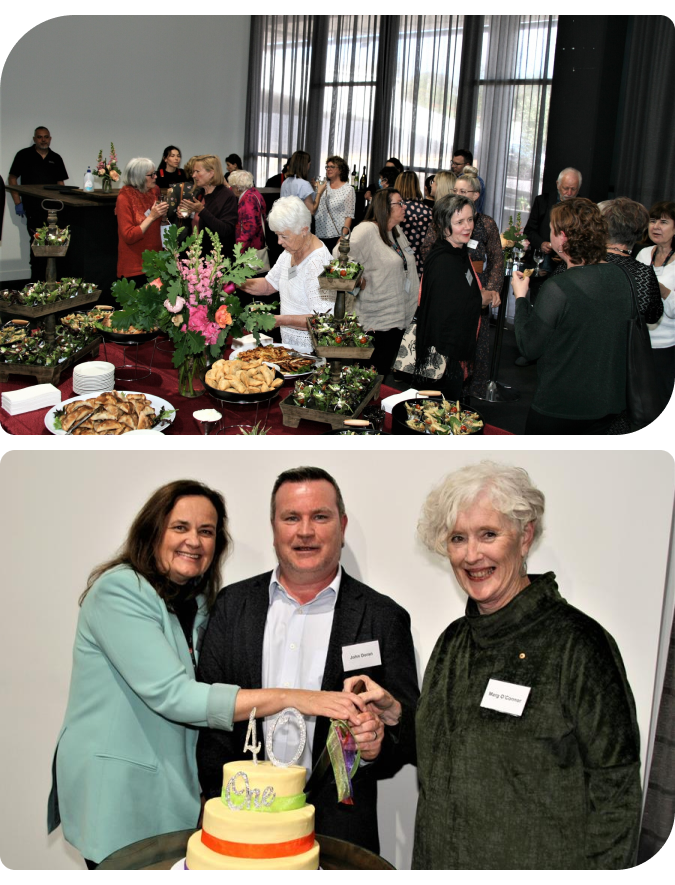
Due to COVID-19 in 2021 interrupting a number of attempts to celebrate the 40th anniversary of MCMPC, the Palliative Care team managed to have their party on 24 November 2022.
It was a great night of acknowledgement and recognition for the many pioneering achievements of the service. Held at Maronite Receptions onsite at the Thornbury office location, a crowd of around 90 people joined in the celebration. The current day team was joined by former colleagues, friends, supporters, and external service partners.
Professor Margaret O’Connor’s longstanding association with the Palliative Care team provided the perfect opportunity to recount the twists and turns of service over its 41 years, and current Senior Manager John Doran spoke of future opportunities. The guests were also treated to the premier screening of ‘6 Questions’, a video in which MCM Palliative Care staff answer questions about their experiences in their field.
Presentations, Publications and Research Involvements
Palliative Care staff have been active in examining contemporary practice, participating in research, and sharing their findings and outcomes locally, nationally, and internationally during the year.
Publications have included features on models for bereavement support, how telehealth has enhanced service delivery, palliative care in aged care, carer support tools in community practice and models for palliative care for clients who use drugs and/or alcohol. These have been published in journals ranging from the Medical Journal of Australia, PallMedicine, BMJ Supportive and Palliative Care Journal, Aged Care Insite
Presentations have occurred at forums, summits, and conferences on topics ranging from voluntary assisted dying, aged care, telehealth, grief, loss and bereavement. Work on models of palliative care for people who use drugs and/or alcohol, and online self-compassion training, was also presented at the European Association for Palliative Care Conference in Rotterdam.
Research focused on interventions commonly employed in palliative care and cancer symptom management has distinguished MCMPC as the largest national collector in trials evaluating the efficacy and net clinical response (harms and benefits) of telehealth and opioids for symptomatic breathlessness. Additionally, MCMPC holds the second-highest ranking as a collector in the series evaluating medical cannabis in end-of-life settings.


Congratulations to Dr Jane Sullivan OAM
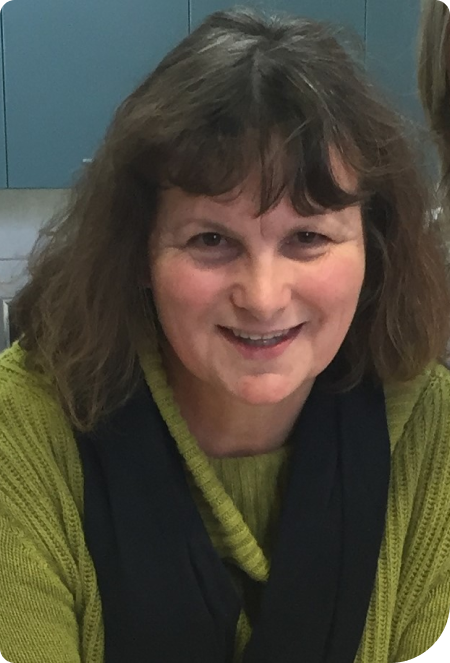
Dr. Jane Sullivan, a former MCM Palliative Care Counsellor, was recognised in the 2023 Australia Day Honours List with the prestigious Order of Australia Medal (OAM) for her exceptional community service through various organisations, including her time at Melbourne City Mission Palliative Care Service from 2013 to 2019.
The Palliative Care team is grateful for her skills, expertise, and advocacy offered to clients and colleagues during her time as a senior figure within the allied care team and broader palliative care community program.
Receiving the OAM is a testament to the depth and breadth of her experience, and it is a privilege for MCM to be one of the organisations to which she has contributed. We’re proud to have had Jane as part of our Palliative Care team, and we commend her for positively impacting the lives she touches.
Other highlights include:
- MCMPC, in conjunction with Palliative Care Victoria and partnering agencies, have worked diligently through the last 12 months in the pursuit of recognition and sustainable funding for Community Palliative Care. The Sustainability of Palliative Care in Victoria Report in conjunction with KPMG Australia was released to form the basis for advocacy for the October 2022 State Election.
- The Palliative Care program completed a series of professionally produced videos to offer insight into the role of the carer in the setting of end-of-life care. The series gives the perspective of lived experience and provides carers with tools to support care at home.
- Service provision and demand for MCMPC grew with increases seen in the number of referrals, admissions for service, and client separations. Notably, deaths occurring at home have remained 41% higher than pre-COVID levels in 2018/2019.
- Key Client metrics relating to Referrals and Admission to Service each rose by 5%.
- 1560 clients and their families/carers were supported in 2022/23.
- 88% of clients are dying in their place of choice.
- 50,819 individual contacts with clients (up to 4500+ per month)
- Key experience measures from the 2022 Victorian Health Experience Survey demonstrated that:
82.6%
94.7%
86%
88%
MCM has a strong history of championing the rights of children and families. Today, we continue to stand firm in our commitment to harnessing the inherent strengths and capacities within families and communities. Through our efforts, we empower parents to equip their children with a solid foundation for life.
Childcare and Kindergarten
Operating two long-day care services in Doreen and Brunswick, MCM offers support and care for children aged 0-6 years. With an integrated three and four year funded kindergarten program run by highly qualified early childhood teachers, children are offered opportunities to develop and experience smooth transitions into primary school settings.
The environments and staff at both services offer rich and purposeful experiences that incorporate cultural understandings, creativity, and the opportunity to grow in all developmental aspects.
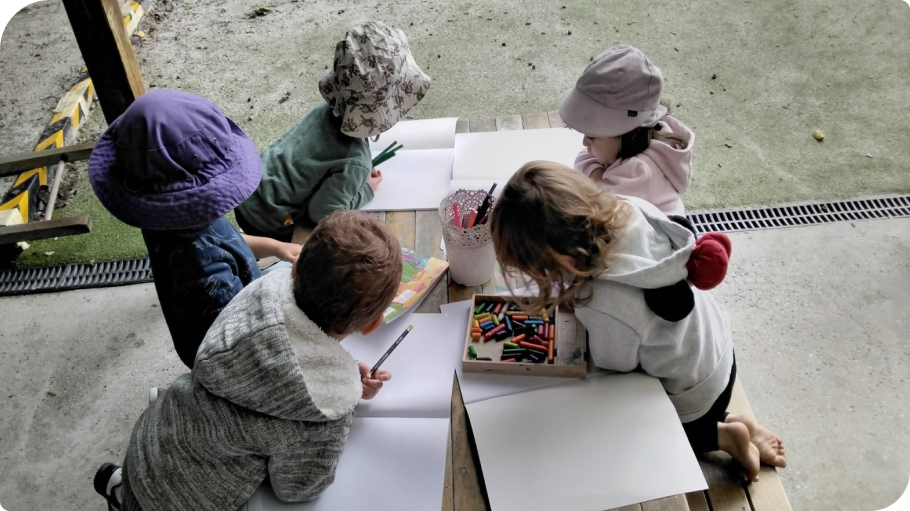
Family Services
The Family Preservation and Reunification Response (FPRR) is a model of case managed support for families. It aims to keep families together or reunify them if their children have been in care.
Highlights of the year include:
- Successfully tendered and received two Department of Families, Fairness and Housing funded Community Connector roles to sit within the FPRR program. Community Connectors work with FPRR providers and support clients to link with sustainable networks of universal, community and cultural supports, during their involvement with the program, and as they transition from FPRR.
- The FPRR adopted the North Carolina Family Assessment Scale (NCFAS). This is an assessment tool to examine family functioning in areas such environment, parental capabilities, family interactions, family safety, child wellbeing, community life and a number of other aspects. Using this scale guides our staff to decide on whether action should be taken. It does this by rating a family across a range of areas of family functioning, where a negative score means that there is a legal or ethical reason for intervening.
This has provided an evidence-based approach to monitoring risk and tracking outcomes for the families we support. - The Family Services team developed Child Wellbeing Practice Guidelines. These guidelines serve as an informative resource for all homelessness and family services staff, outlining MCM’s commitment to ensuring the wellbeing and safety of children that we support.
- Family Services staff completed four days of Safe and Together Core Training. This training provides the team with a best practice and consistent approach to supporting families that have been impacted by family violence.
- The Family Reconciliation and Mediation Program (FRMP) team collaborated as co-researchers with faculty from The University of Melbourne on a project designed to explore the value of group dance movement therapy sessions for young people who are experiencing challenging circumstances, that are known to be risk factors leading to homelessness. The proposed study is currently under review through the University’s Human Ethics Committee and will take place in a secondary school in Geelong in 2024.
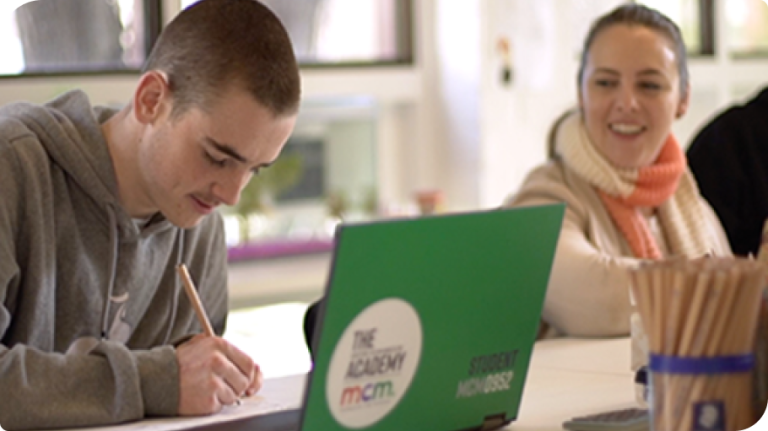 Living Learning is an innovative program that provides education and support for young people aged 15 to 21 who are disengaged from employment, education and training and who experience mental health challenges.
Living Learning is an innovative program that provides education and support for young people aged 15 to 21 who are disengaged from employment, education and training and who experience mental health challenges.The program is supported by the Victorian Government as part of its Partnerships Addressing Disadvantage (PADs). PADs bring together the public, private, and not-for-profit sectors to address deep-seated disadvantage through a social impact investment model.
2023 has been Living Learning’s peak year with 144 participants engaged, and 17 staff in the team. In December we finished the three year support program with 48 young people. We are really pleased that almost every graduate is leaving us engaged with study or employment, in a very positive place and with ongoing community connections.

Hester Hornbrook Academy
Hester Hornbrook Academy was established to respond to the needs of young people who have not flourished in traditional education systems and settings. Our approach integrates education with comprehensive wellbeing support, ensuring a teacher and youth worker are present in every classroom.
We specialise in working with young people who have experienced diverse life experiences and complex barriers to engaging in traditional education, which is why our focus on wellbeing support is so critical.
Students at the Hester Hornbrook Academy often come from backgrounds marked by adverse childhood experiences such as abuse, neglect, family violence, and parental mental illness or substance abuse – either personal or familial. Consequently, they frequently exhibit significant educational gaps spanning three to five years.
Through our innovative healing-oriented model, we empower students to embark on their educational journey and access a spectrum of choices and opportunities. Our curriculum offers a range of learning pathways that support young people to gain practical skills, work towards their goals, and take charge of their future.

438
Students supported

90%

90%

88%
For a comprehensive update on activities and achievements at Hester Hornbrook Academy, click here to read their 2022 Annual Report.
On 5 April 2023, Hester Hornbrook Academy hosted an Open Day to celebrate the brand-new campus in South Melbourne. The students did a fantastic job warmly welcoming guests, serving canapés, and giving tours of the creative classrooms.
To begin the event, Senior Wurundjeri elder of the Kulin Nation, Aunty Joy Murphy Wandin and her family, provided a powerful Welcome to Country and a smoking ceremony.
Among those attending were Labor State Member for St Albans Natalie Suleyman, Federal Member for Macnamara Josh Burns, Labor Member for Albert Park Nina Taylor, and Hester Hornbrook Chair Dr Ros Otzen.


The Hester Hornbrook Academy Werribee campus is due to open for the beginning of the 2025 school year. This campus will offer VPC and VCE with VATiS programs which will include allied health and childcare, with industry links in the local area providing further education pathways and career opportunities.

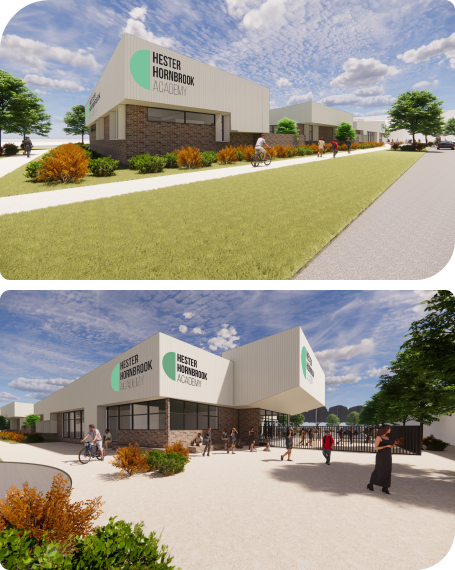
MCM Housing
MCM Housing is a Registered Housing Provider which provides social housing to low and very low-income young people aged 18-24, experiencing or at risk of homelessness. This includes supporting young people to develop skills and confidence for independent living, securing and maintaining stable housing, and providing access to education, employment, and other MCM Group services.
We know there is a gap in long-term housing and support options for young people at risk of and experiencing homelessness, particularly for young people who require significant support to maintain housing in the face of significant mental health and behavioural issues. This group of young people usually experience reduced levels of housing assistance, only to later become disqualified or ineligible for services due to their extended and more significant support requirements.
To try and fill these gaps, MCM Housing, in conjunction with MCM, has developed the Youth Housing Initiative (YHI), which has been designed to support young people experiencing homelessness and other complex needs to transition to independence. YHI proposes a way in which housing and support can be delivered to young people experiencing homelessness who are currently subjected to the effects of limited medium to long-term affordable housing options. YHI will provide three interchangeable levels of housing and support for up to four years, allowing young people to more seamlessly and efficiently step up or down in support as they transition to independence.
During July 2022, MCM Housing was successful with a tender to Homes Victoria for two construction projects. The tender was submitted to allow MCM Housing to create two housing types for YHI: a congregate model comprising six single bedrooms with community living, dining, and laundry; and a core and cluster model comprising ten independent living units. Both projects are situated in Melbourne’s west, commenced early 2023, and will be completed in the first quarter of 2024.
MCM Housing plan to expand housing development initiatives in the coming years, with the goal of being the leading community housing organisation for young people in Victoria.
MCM Housing 5 Year Strategy
A robust five-year strategy has been formulated by MCM Housing, driven by a compelling vision: ensuring that every young person finds a place to call home. Over the next five years, MCM Housing is committed to expanding housing opportunities for young people – setting an ambitious goal of establishing 250 tenancies by 2027. We’ll also work to create better housing options, have models that are financially sustainable for tenants and MCM Housing, advocate for young people to elevate their needs in the housing system, and understand the impact of housing solutions on young people.
Other highlights include:
- Two of three new housing constructions – Glenluss St, Werribee, and Waterhaven Boulevard, Point Cook – are on track for completion in the first quarter of 2024.
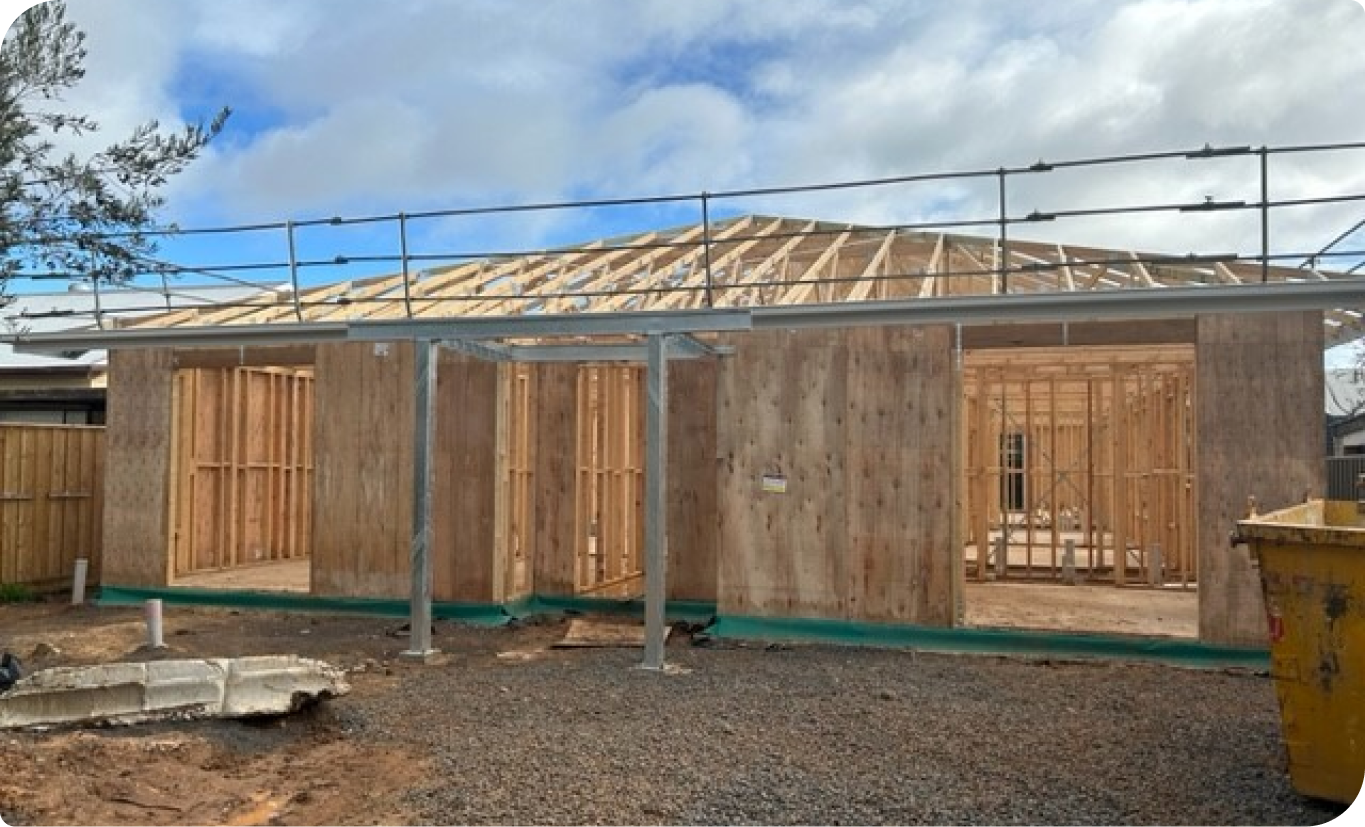
- Tenant intake across four properties will house up to 36 young people by the end of the first quarter 2024. This includes six tenancies at Glenluss Street, 12 at head-leased apartments in Footscray, 10 in the Point Cook townhouses and another 8 in a further four head-leased townhouses, also in Point Cook.
- Six new tenancies at our housing in North Fitzroy, The Precinct, were onboarded through a partnership with the MCM Foyers Team.
- Executive Officer Lisa Dalla-Zuanna met with Federal Government Ministers in Canberra for the launch of the 2023 Youth Housing Framework.
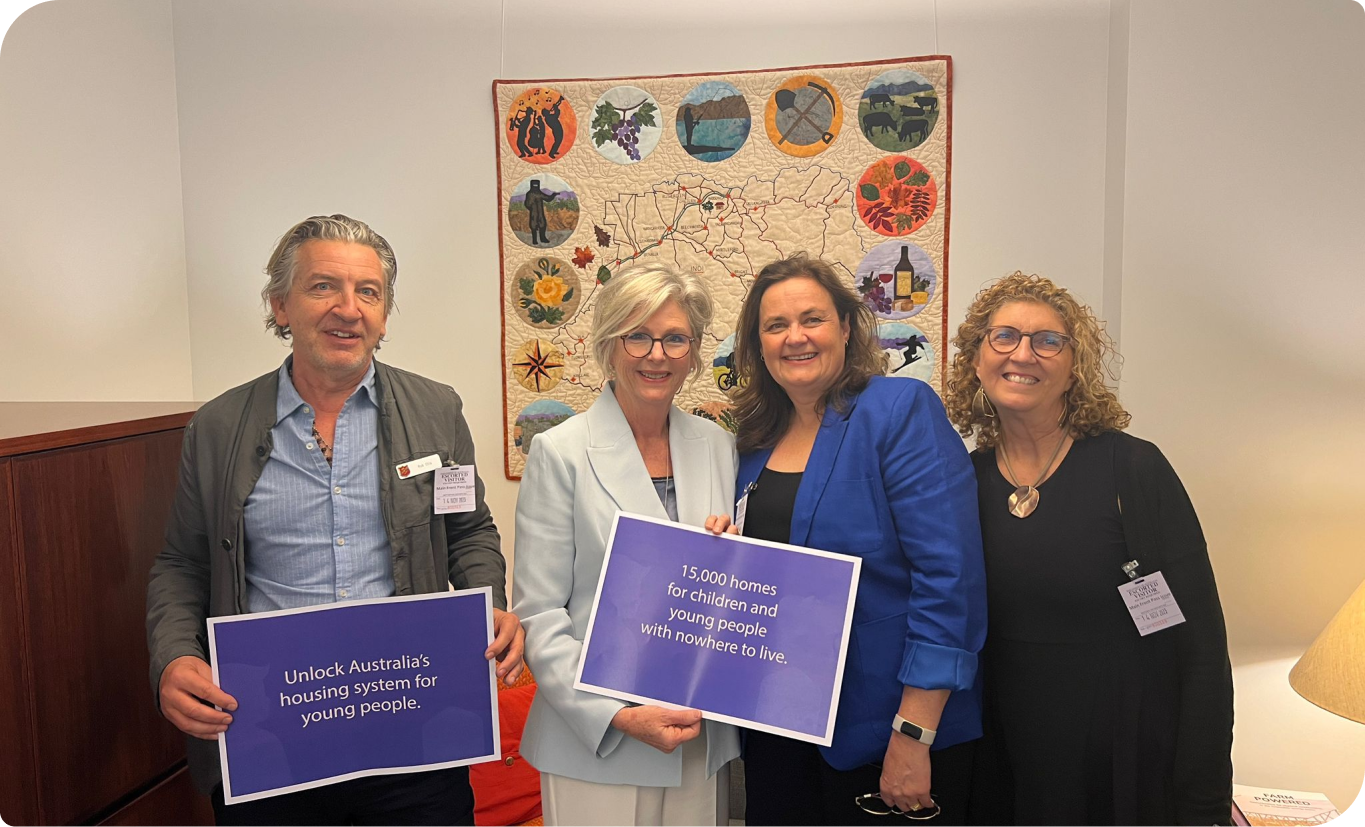
- MCM Housing team was represented at the AHURI National Housing Conference, National Children and Youth Homelessness Conference, and CHIA Vic Conference
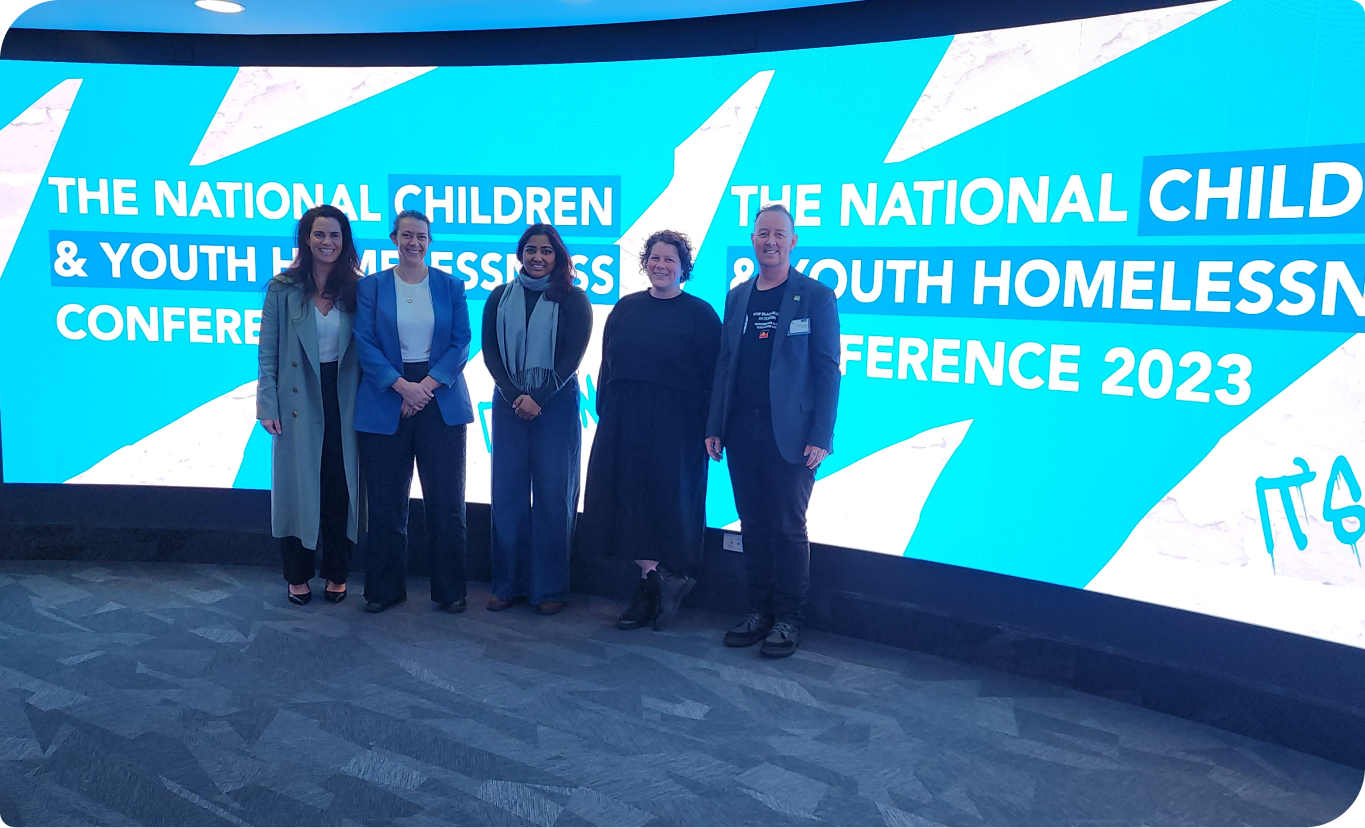
Advocacy
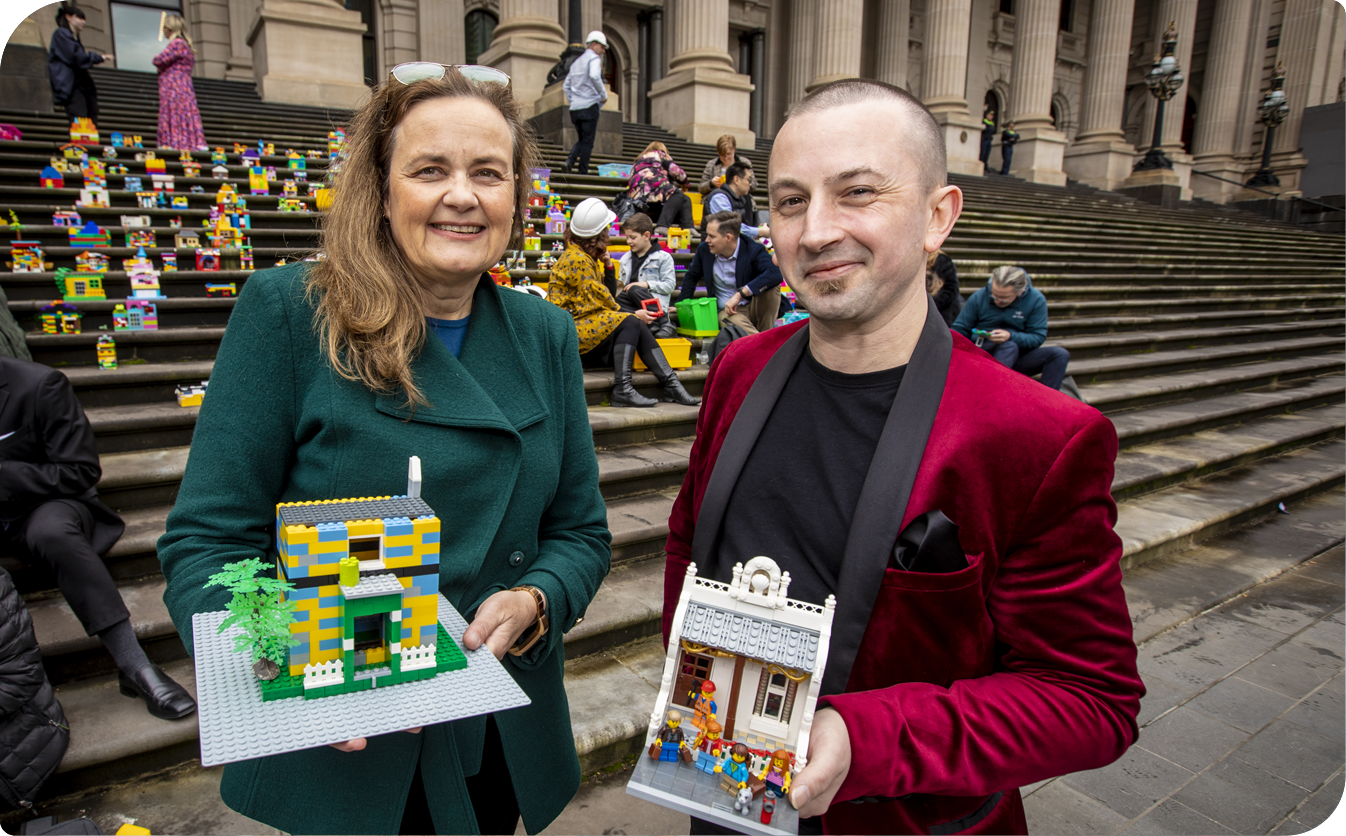
During Homelessness Week in August, the steps of Parliament House in Melbourne were covered by LEGO brick houses, serving as a powerful message to decision-makers of the pressing need to address the housing crisis for at least 5,000 vulnerable young people in Victoria in need of a safe home.
This innovative and eye-catching social action was strategically aimed at both raising awareness and exerting influence on government investment and policy reform initiatives geared towards unlocking adequate housing solutions for young people. The event nurtured unity and cohesion among a coalition of prominent peak bodies, housing and homelessness organisations, strengthening our collective advocacy efforts for sustainable change.
Having this event come together was a true collaborative effort across MCM and Hester Hornbrook Academy. In the weeks leading up to Homelessness Week staff and students at Hester Hornbrook, staff and clients at Frontyard and Foyers, the Strategy and Engagement team, and the Executive team were busily building the hundreds of LEGO and Duplo houses that later found themselves on the front steps of Parliament.
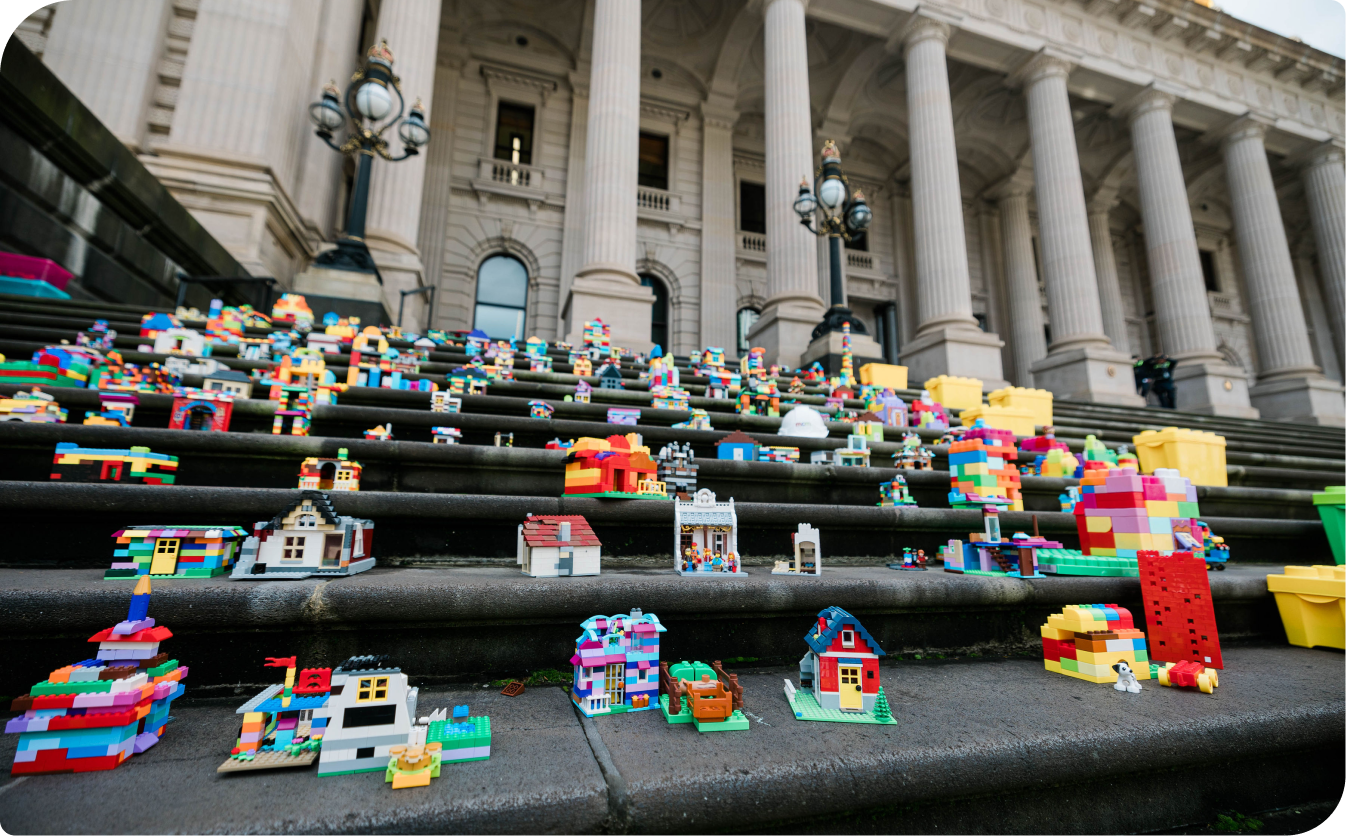
On the day we were joined by many homelessness advocacy leaders from across the sector, along with students from our Hester Hornbrook city campus, and young people with lived experience of homelessness, who continued to build houses on the Parliament steps throughout the morning. We even had some of the contestants of LEGO Masters Australia on hand to build us some fancy houses and support our advocacy!
It was a very successful advocacy event where the sector’s voice was heard loud and clear, and attracted a lot of highly positive media attention. This is another step forward in our commitment to ensuring that young people experiencing homelessness have access to housing and support services that are safe and specific to their needs.
Following the LEGO social action, MCM together with Council to Homeless Persons, Community Housing Industry Association Victoria, The Salvation Army and Kids Under Cover, commissioned Nous Group in September 2022 to develop a Victorian Youth Housing Framework.
After four months of developing the framework, it was shared with the Victorian Government as an invitation to partner with us in creating an effective and efficient model, aligned with homelessness and housing policies, and a range of portfolio areas responsible for improving outcomes for young people aged 15 to 24 who are engaged with the homelessness service system.
The framework aims to provide a foundation for ongoing discussion and asks the Victorian Government to design and implement a dedicated and fit-for-purpose youth housing model. Recent research highlights the challenges created by a lack of youth specific policy or framework to achieving effective outcomes for young people. The three key areas identified in the Victorian Youth Housing Framework to focus on are:
- Provision of housing – increase provision of youth-dedicated tenancies to meet current and future demands.
- Services and support – design integrated, safe, effective and appropriate services and supports that respond to their needs, preferences and circumstances to achieve sustainable housing outcomes.
- Subsidies for viability – increasing access to different property types will require subsidies that are deep enough to make it viable for more young people to be provided housing.
The sector is committed to resolving this significant issue and looks forward to working with the Victorian Government, and ultimately the Federal Government in designing the solution.
As part of our Victorian Government Election Advocacy Platform, we developed a campaign to amplify the voices and lived experiences of young people, placing them front and centre in public election campaigning. Through a series of proactive stories, impassioned letters to MPs and an aggressive social media campaign, we were able to influence party policy platforms. This included advocating for the implementation of a comprehensive youth homelessness strategy, recognising children and young people as victim-survivors in their own right, and the need for reimagining of social housing tailored to the needs of young people.
In October the story of Ashley*, one of the young people experiencing homelessness that we support featured in an article on Mamamia and The Australian. Ashley, a young mum, had to couch surf with her young son Arlo* after fleeing family violence.
Sadly, this the reality for many young mothers.
MCM has seen a 145% increase in the number of 16 to 24-year-old women, many with young children and most fleeing family violence, accessing our Young Women’s Crisis Homelessness Programs since the start of the pandemic in 2020. MCM is calling for a youth housing pipeline of at least 5,000 social housing places with support to address the urgent need.
*names changed to protect privacy
MCM drove a successful national advocacy campaign to have children and young people recognised as victim-survivors in their own right in the National Plan to End Violence Against Women and Children, which included submissions and joint statements by leading survivor advocates Rosie Batty and Grace Tame, National and State Commissioners, universities and peak bodies. Read the full statement.
 On 13 February 2023, Minister for Housing Colin Brooks announced a $50 million investment into purpose-built youth housing, thanks to a massive advocacy campaign driven by MCM in partnership with Council to Homeless Persons, The Salvation Army and Australian Housing and Urban Research Institute.
Minister Brooks visited our West Refuge in Werribee to inform MCM that we are among eight recipients of this funding. Consequently, we are pleased to announce that two new housing projects will be built in Werribee.
MCM lived experience representative Ray, joined us alongside his partner and children. Ray spoke to the Minister of Housing and media about his experience with our refuge and housing support. Ray’s history showed his resilience and the value that youth housing provides for young people to navigate pathways out from the experience of homelessness.
On 13 February 2023, Minister for Housing Colin Brooks announced a $50 million investment into purpose-built youth housing, thanks to a massive advocacy campaign driven by MCM in partnership with Council to Homeless Persons, The Salvation Army and Australian Housing and Urban Research Institute.
Minister Brooks visited our West Refuge in Werribee to inform MCM that we are among eight recipients of this funding. Consequently, we are pleased to announce that two new housing projects will be built in Werribee.
MCM lived experience representative Ray, joined us alongside his partner and children. Ray spoke to the Minister of Housing and media about his experience with our refuge and housing support. Ray’s history showed his resilience and the value that youth housing provides for young people to navigate pathways out from the experience of homelessness.
“I would probably be couch-surfing; I probably wouldn’t have a second daughter here who I genuinely love to bits.”The homes built using this funding will deliver a range of housing options, including integrating education and employment services. Additionally, they will be situated where external amenities are readily accessible.
Walk Against Family Violence
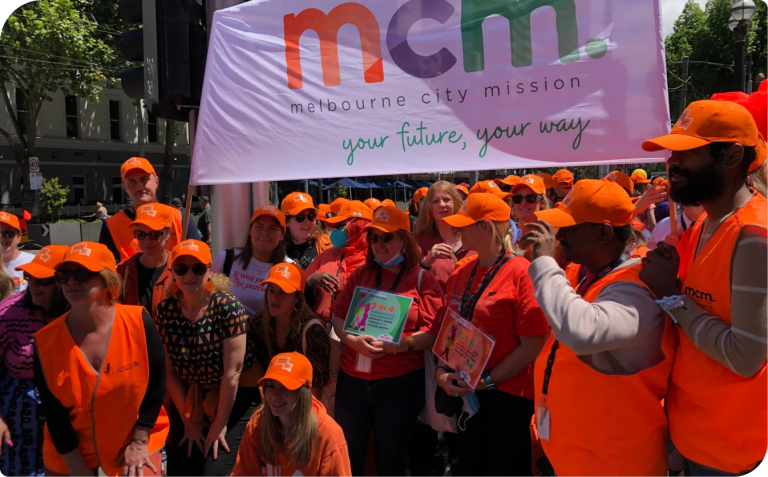
On Friday 25 November, MCM staff joined with many other organisations and individuals to take part in the annual Walk Against Family Violence for the International Day for the Elimination of Violence Against Women. Organised by Safe Steps Family Violence Response Centre and Respect Victoria, the walk begun on the steps of Parliament House on Friday morning and concluded at the Royal Exhibition Building. It was a fantastic opportunity to show support for victim survivors and their families, and to advocate for an end to gender-based and family violence to create a safer future for the next generation.
Midsumma Pride March
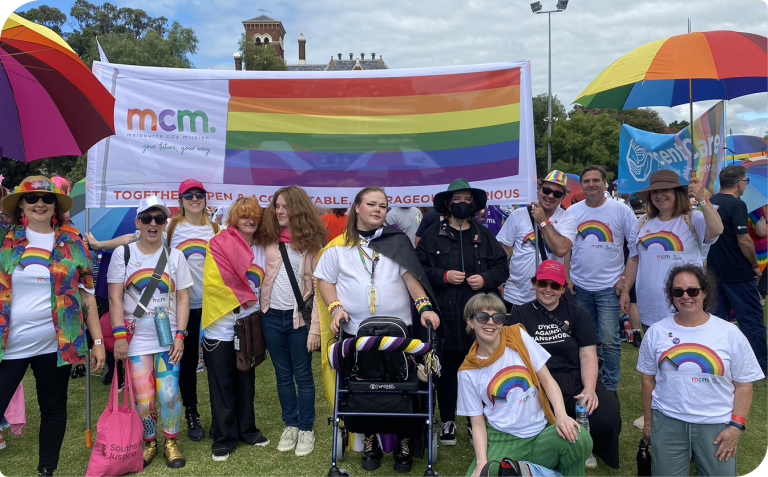
A crowd of more than 10,000 vibrantly dressed participants strutted the runway of Fitzroy Street in St. Kilda for the Midsumma Pride March on 5 February 2023. MCM staff and Hester Hornbrook students were parading support among the stream of people. As our team smiled, waved, and walked the walk, we saw the road’s edge crammed with ecstatic supporters of all ages, cheering, clapping and flag-waving. With ideal weather conditions, we could twirl our umbrellas and proudly hoist the MCM banner for all to see.
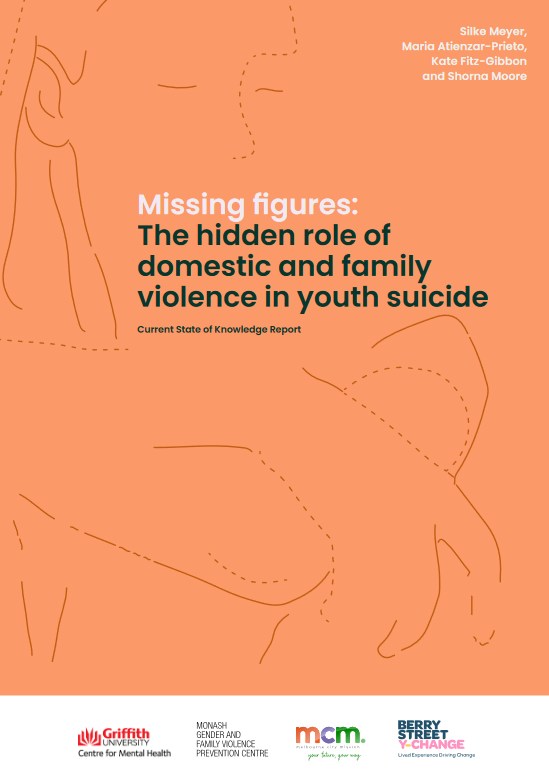 April 2023 saw MCM release the Missing Figures: The hidden role of domestic and family violence in youth suicide report, which examines the intersection between children and young people’s experiences of domestic and family violence and their risk of youth suicide. We have lost many young people to suicide directly linked to family violence; Missing Figures is one of the ways we are highlighting and advocating for a significant issue that has been overlooked.
April 2023 saw MCM release the Missing Figures: The hidden role of domestic and family violence in youth suicide report, which examines the intersection between children and young people’s experiences of domestic and family violence and their risk of youth suicide. We have lost many young people to suicide directly linked to family violence; Missing Figures is one of the ways we are highlighting and advocating for a significant issue that has been overlooked.
The report is directly linked with our family violence advocacy, and we hope it will ensure children and young people receive the trauma-informed care they deserve and so desperately need.
The report recommends further research; establishing a specialised service system for 12-to-24-year-old victim-survivors, evidence-based policy reform; and more information sharing between services, including coroners, to ensure histories of childhood trauma are not missed and their role in later life outcomes are recognised.
Missing Figures was developed by MCM and Berry Street; Y-Change advocate Tash Anderson; the Monash Gender and Family Violence Prevention Centre; and the Griffith University Centre for Mental Health.
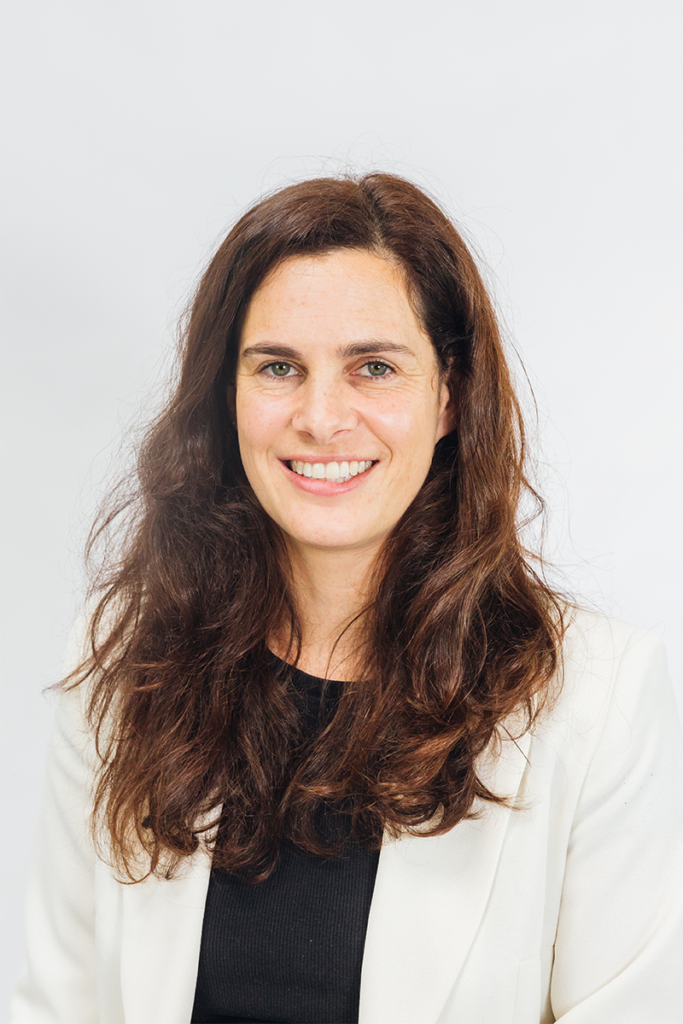
MCM’s Head of Policy, Advocacy and Government Relations, Shorna Moore received the Change Agent Award at the induction of the 2022 Victorian Honours Roll for Women.
Shorna has been a leader in the justice, youth and homelessness sectors for more than 15 years and is dedicated to driving positive social change for children and young people. Her work on the issues of couch surfing as a form of youth homelessness, and children and young people experiencing family violence has resulted in lasting government and NGO reforms. Shorna also identified schools as an effective environment for young people to access justice and enforce their human rights, and this work has been replicated across Australia and globally.
People, Quality & Safety
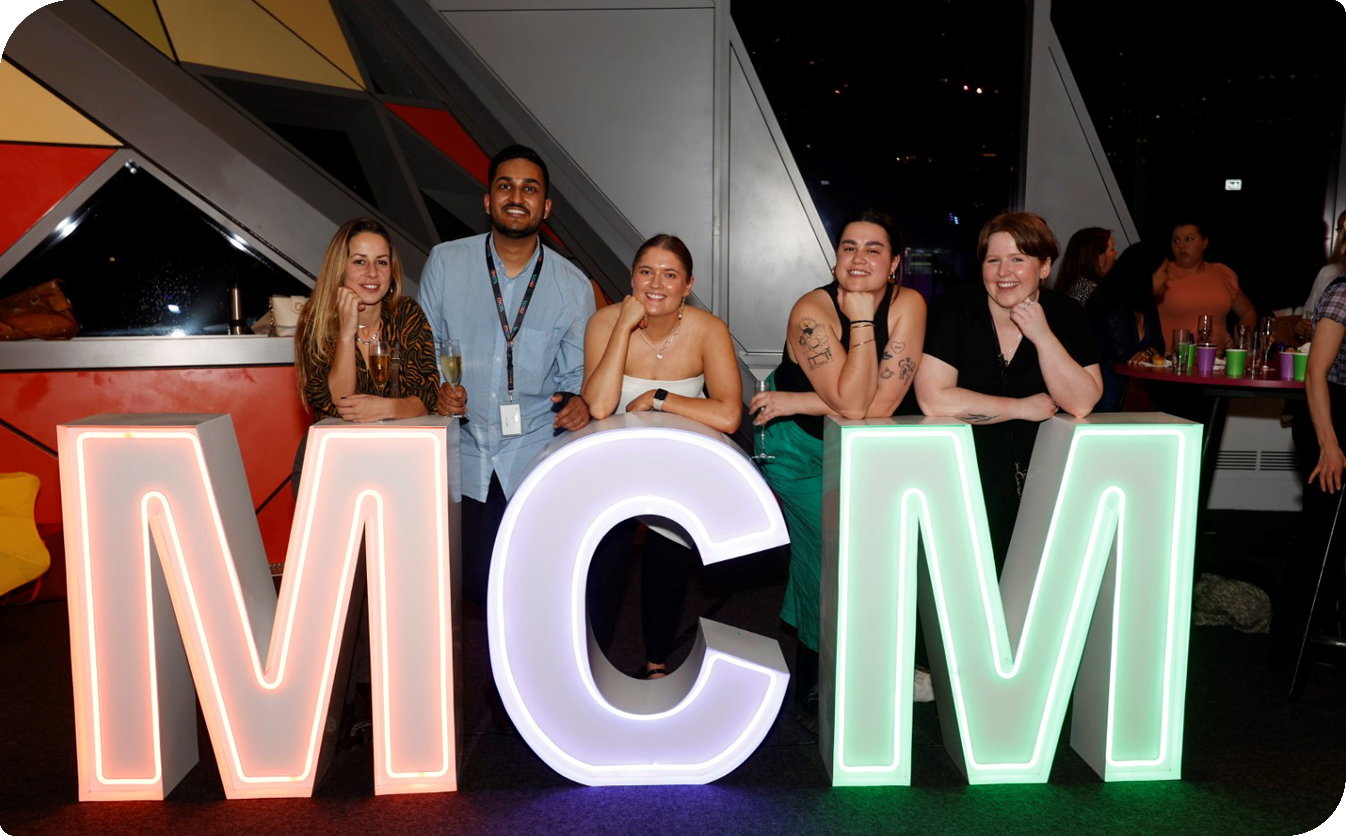
The People, Quality, and Safety team ensures the alignment of organisational strategy and objectives with the cultivation of a thriving workforce, the stewardship of uncompromising quality standards, and the mitigation of potential risks. MCM is proud to be recognised as an Inclusive Employer by the Diversity Council of Australia.
Some of the key highlights of the year include:
Learning & Professional Development
MCM renewed its commitment to the ongoing learning and professional development of its workforce with the drafting and endorsement of the Learning & Professional Development strategy, setting a roadmap till 2027. The Learning & Professional Development strategy supports organisational capability, supports the organisation’s “Enable” and “Deliver” goals, improves leadership development, and reinforces the Healing Oriented Framework and practice development.
Diversity, Equity & Inclusion
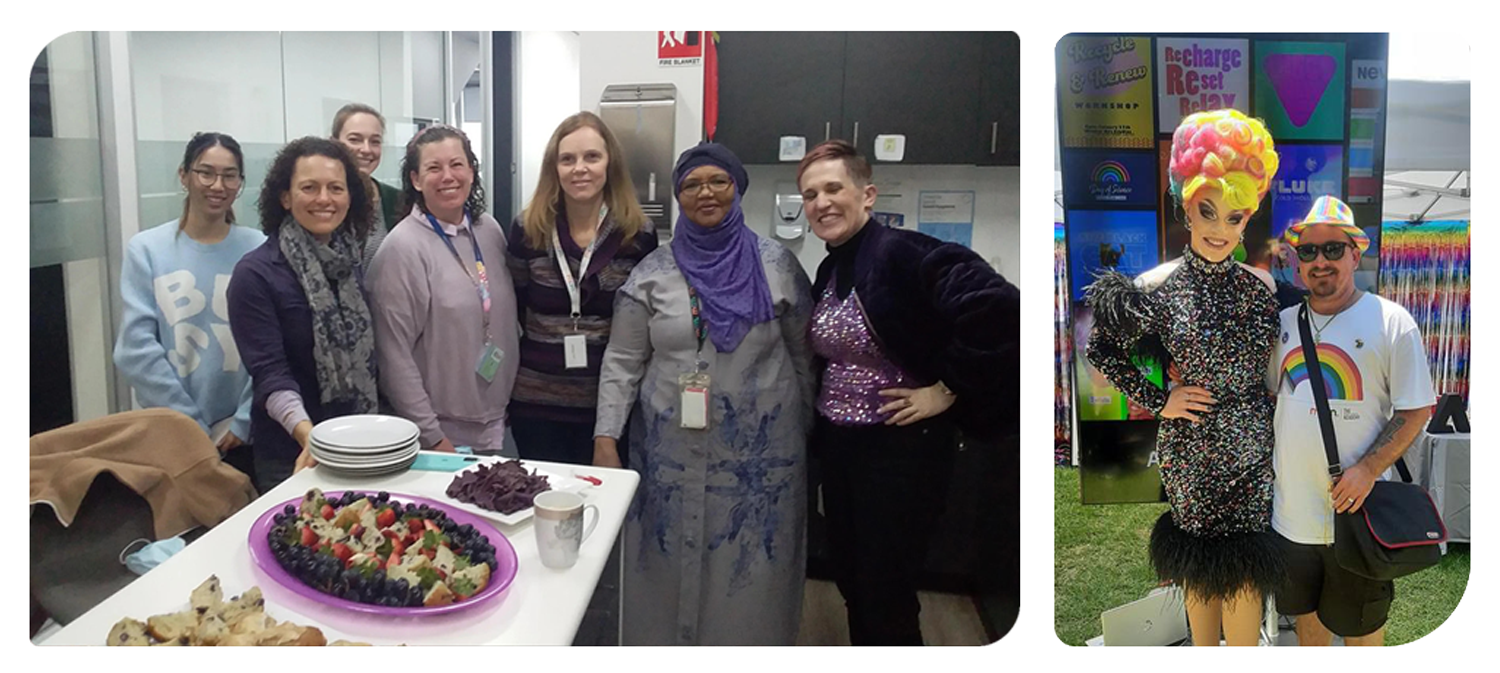
The launch of the ‘Possibilities. On.’ strategy brought an increased focus on Diversity, Equity of Access and Inclusion for MCM Group. The goal of enabling our workforce to do their best work requires one that is inclusive and reflects the people we support. As part of the work towards these objectives, MCM:
- Implemented the role of Head of Workforce Inclusion and Engagement, to create and drive strategic culture change, from January 2023.
- Consulted broadly with our workforce to understand more about their experience of inclusion at MCM, to inform our strategic objectives.
- Commenced a program of highlighting the importance of diverse lived experience, designed to enhance inclusivity, connection, and engagement for our workforce. Examples included members of our Rainbow Committee sharing personal experiences of diverse gender and sexuality for IDAHOBIT, as well as a webinar with members of our DEI Working Group speaking to their experiences of racism as a source of strength and connection for International Day for the Elimination of Racial Discrimination.
- Reinvigorated MCM Group’s Reconciliation work through the period January – June. This included a focus on staff education and building First Nations Cultural Safety for our workforce and the people we support. A significant step was to implement workforce flexibility for those who do not want to take 26 January as a public holiday, in recognition that many of our workforce do not see it as a day to celebrate.
- Promoted awareness and knowledge of First Nations Cultures and Cultural Safety in the workplace during National Reconciliation Week, through a webinar conversation between Vicki Sutton, CEO, and Professor Nareen Young, professor for Indigenous Policy at the UTS Jumbunna Institute for Indigenous Education and Research.
- Launched “You Can’t Ask That” webinar series in June 2023, with MCM’s First Nations consultant Bonnie Chew, a proud Wadawurrung woman. This was attended by over 90 staff, giving them the opportunity to ask questions without judgement, growing their understanding of First Nations Cultures and experience, and their skills in working with the First Nations people we support.
Human Resources
The results of the Employee Experience survey in March 2023 shows a positive shift in MCM culture and employee experience. This year’s survey showed that ‘Current engagement’ has risen from 61.5% to an impressive 72% since 2021. These numbers are not mere statistics but a testament to the collective efforts of everyone at MCM in contributing to this cultural shift. The organisation will continue to see positive benefits individually and collectively as we continue to deliver our Enable Strategies in the coming years.
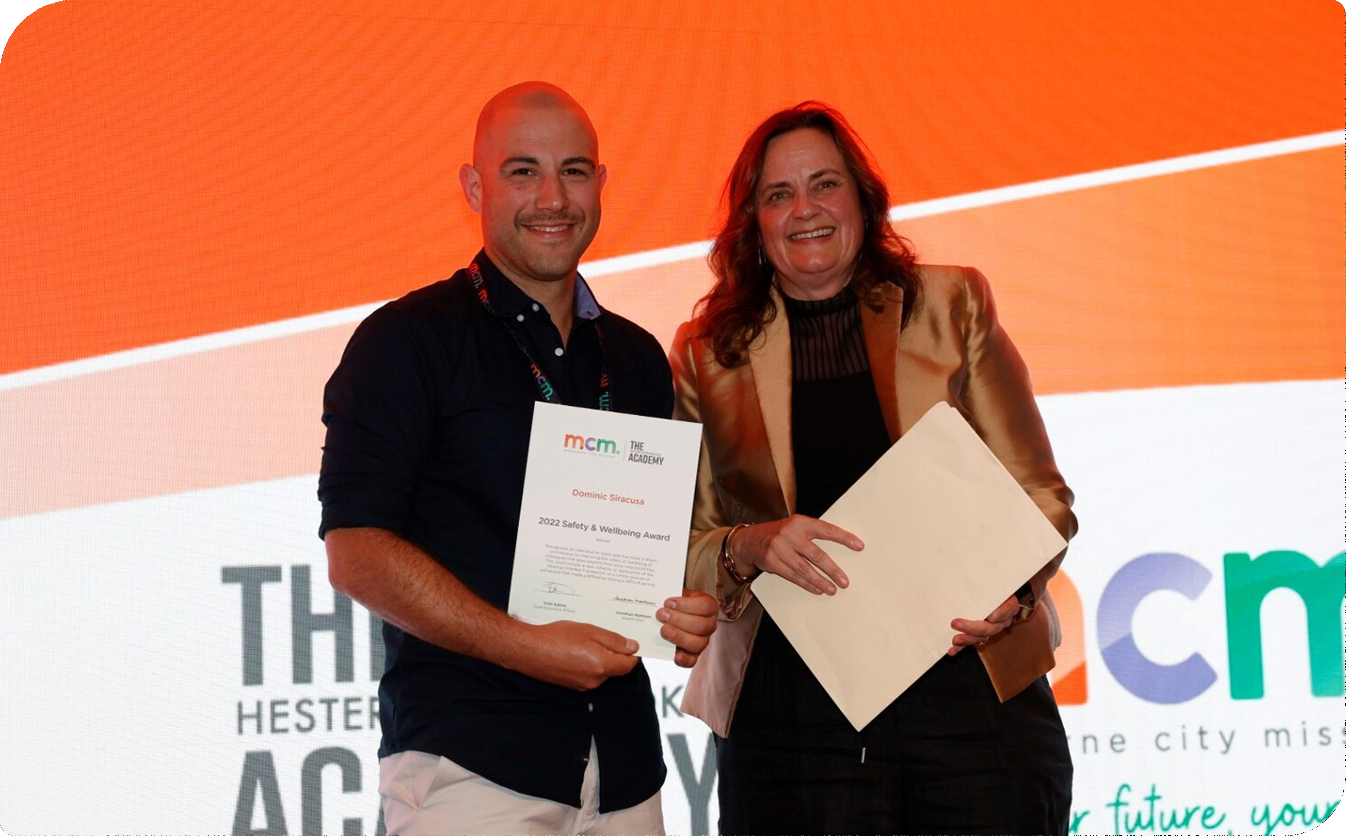
Celebrating Excellence
After two years of COVID-19 restrictions, MCM staff were finally able to come together and celebrate at the 2022 Employee Awards, recognising teams and individuals across MCM and Hester Hornbrook Academy for their extraordinary work during the year. Congratulations to all who were nominated and recipients of awards.
- Safety & Wellbeing Award – Dominic Siracusa, Head of Facilities and Fleet
- Quality Counts Award – H2H Program
- People at the Centre Award – Kat O’Sullivan, Quality Coordinator
- Innovation with Impact Award – Kate Dennis, Leader of VCE, Hester Hornbrook Academy
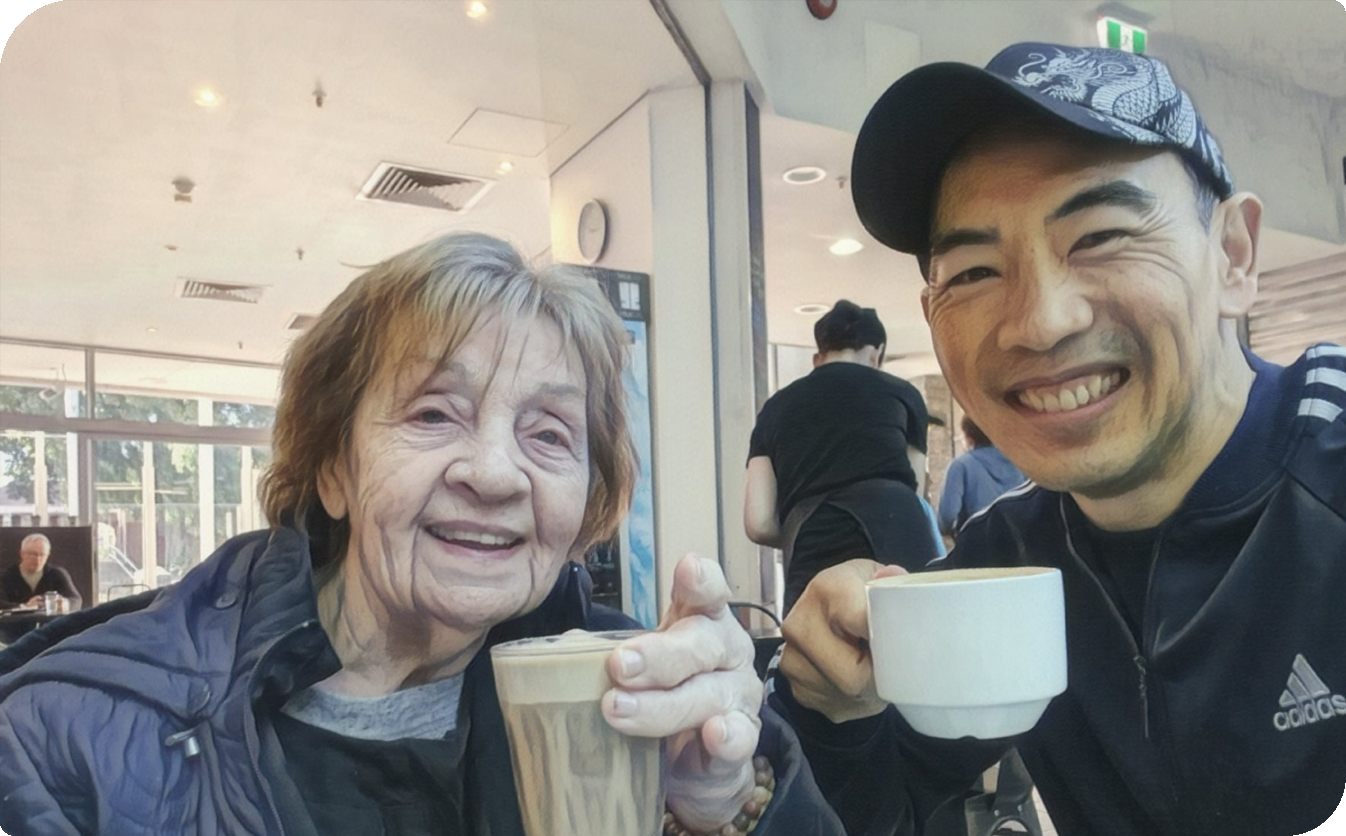
Our passionate and devoted team of 276 volunteers play a crucial role within the MCM family, assisting us in delivering a variety of programs that serve the community’s needs. They enrich our organisation by providing direct assistance to our clients and supporting community engagement. The vital contribution of our volunteers enables us to reach out to more people and, by reducing costs, ensuring that a larger portion of funds are allocated towards our essential services and programs. Volunteers give their time and skills to support the following programs:
Community Friend Program

The Community Friend Program is facilitated by 50 dedicated volunteers who offer personalised and group support to people living with a disability. Through engaging activities, participants find relief from social isolation and increase their involvement in the community. This program offers numerous benefits to participants, including improved independence and community access, and the opportunity to forge new friendships while participating in different activities. Being part of this inclusive and diverse service builds a sense of belonging and cultural enrichment for all.
L2P Learner Driver Mentor Program

The Transport Accident Commission’s L2P Program connects young drivers with community mentors to complete their 120 hours of learner-based driving. MCM, partnering with VicRoads, is a proud supporter of this initiative, providing the opportunity for young people to access employment and education by obtaining a licence. More importantly, we’re ensuring each new P plater is well prepared to drive safely, benefitting all road users. The program focusses on assisting vulnerable young people in the Stonnington, Bayside and Port Phillip Council areas who face barriers to completing the 120 hours of on-road driving experience for obtaining their probationary licence. These young participants are paired with trained volunteer mentors, who undergo comprehensive training by The Department of Transport and Planning and undergo mandatory checks with MCM to provide a quality program for young people. Having operated for 11 years, L2P achieved its best outcome to date in 2023. With the help of 52 volunteers, 40 young people successfully obtained their probationary driver’s licences, marking a significant milestone for the program.
Strengthening Parent Support Program

The Strengthening Parent Support Program (SPSP), funded by Department of Families, Fairness and Housing, offers support to parents of children with a disability from 0-18 years of age. Currently, eight volunteers are actively involved, making various contributions within the community. SPSP at MCM provides unique opportunities for connection and mutual peer support with accessible and up-to-date information, and referrals and linkages to community-based peer networks for families living in the northern suburbs of Melbourne. This gives parents the right supports to build their skills and confidence and to make a difference for children and families.
CIAO Lead Tenant Program
CIAO stands for Community Integration Accommodation and Options. This program provides young people aged 16 – 18 years who are at risk of homelessness, and who have usually been involved with child protection, with safe, stable accommodation and an encouraging home environment. The eight volunteers in this program are a positive, supportive role model for young people who need extra support. The program utilises four houses in Melbourne – two in the Northern suburbs and two in the Western suburbs – and can accommodate eight young people.
Palliative Care
Embracing palliative care as a volunteer is a profoundly fulfilling endeavour, offering great rewards not only to the individuals nearing the end of life and their loved ones but also to the volunteers themselves. This experience instils an appreciation for each passing day, encourages deep listening, and underscores the preciousness of life itself. The 40 palliative care volunteers play a pivotal role in providing support to individuals and families as they navigate this delicate period of life. Sensitivity, empathy, warmth, and effective communication are indispensable qualities that this group of volunteers possess as they guide others through challenging conversations and experiences. Some of the activities our volunteers support our staff with includes:
- Companionship
- Respite support
- Hand/foot massage
- Documenting life stories
- Dog walking
- Transport
- Bereavement support
- Expressive arts program
Click here to read more information about MCM Palliative Care
Aged Care Volunteer Visitors Scheme
The Aged Care Volunteer Visitors Scheme (ACVVS) gives volunteers an opportunity to positively change an older person’s life through friendship and companionship. The ACVVS is funded by the Department of Health and Aged Care, and MCM is funded for 300 volunteers in this program with approximately 175 volunteers currently matched to older people. Based on the average part time wages, MCM volunteers in the past year contribute almost $580,000 per year to this scheme. The scheme aims to reduce loneliness and social isolation of older people living at home or in an aged care residence and offer more social support and connectivity to the wider community.
As legislative changes come into effect, MCM reviews all affected program areas and where necessary, aligns policies and procedures to conform to any relevant changes in the Acts. This process ensures that MCM is fully compliant with current legislation and continues to operate in accordance with best-practice standards and safety for our clients and staff.
In the past year, three major changes of note were implemented to ensure compliance against the following Acts.
Compliance with the Victims Charter Act 2006 (Vic)
Some program areas of MCM are defined under the Victims Charter Act 2006 as a Victims Services agency and are therefore obliged to operate against applicable Charter Principles, outlining:
- Treatment of persons adversely affected by crime
- Information to be given to persons adversely affected by crime
- Special treatment of victims
- Communication with victims
- Victims’ privacy
- Information regarding complaints process for persons adversely affected by crime
- Complaints system for victims
- Victim may complain to other agencies
MCM has reviewed relevant policies and procedures to ensure we comply with the Charter Principles.
Compliance with the Mental Health Act 2014 (Vic)
MCM has made changes to procedures in readiness for alignment to amendments to the Victorian Mental Health and Wellbeing Act 2022 which commences on 1 September 2023.
The act applies to state-funded mental health and wellbeing service providers. The Act supports changes underway to create a diverse, responsive and compassionate mental health and wellbeing system for all Victorians.
The Act is a key recommendation of the Royal Commission into Victoria’s Mental Health System. It replaces the Mental Health Act 2014 and sets the foundations for the reformed mental health and wellbeing system envisioned by the Royal Commission.
The Act includes a Statement of Recognition of Aboriginal people and acknowledgement of the Treaty process. The Statement enshrines commitments to Aboriginal self-determination in Victorian Government health statutes for the first time.
Where MCM programs provide services to clients who are experiencing Mental Health and Wellbeing issues, we are obliged to operate against the mental health and wellbeing principles which include:
- Dignity and autonomy
- Supported decision making
- Dignity of risk
MCM’s Healing Orientated Framework (HOF) is applied as the overarching operational model, along with related policies and procedures The HOF is closely aligned with the principles defined in the Act.
Child Wellbeing and Safety Act 2005 (Compliance with Child Safe Standards VIC)
All Victorian organisations that provide services or facilities to children are required to comply with the Child Safe Standards. There are 11 Child Safe Standards. MCM was audited against these standards and we complied. MCM is a child safe organisation.
These Standards commenced on 1 July 2022 and replace the Child Safe Standards that were established in 2016. The Child Safe Standards aim to protect children and young people, by requiring organisations to put policies, procedures, and processes in place to prevent and respond to abuse.
They aim to make keeping children and young people safe a key focus of organisations in Victoria.
The following improvements have been implemented throughout MCM Group to ensure Child Safety for our clients:
- Procedures have been reviewed and updated
- Committees have had enhancements to scope and membership
- Child Safe Awareness campaigns have been delivered throughout the organisation
- Staff induction now emphasises child safety themes and responsibilities
- Expanded governance requirements of committees within MCM
These improvements have been embedded into standard operational practice and are being constantly monitored and reported through various governance committee structures throughout MCM.
Quality Improvements
The past year has realised many improvements applied to the Quality systems that operate across all MCM Group programs. These activities are primarily put in place to enhance the safety of the services we offer our clients, and to ensure that we are conformant to applicable standards. During the past year, MCM has maintained accreditation in the following standards:
- NDIS Practice Standards
The NDIS Practice Standards specify the quality standards to be met by registered NDIS providers to provide supports and services to NDIS participants. Together with the NDIS Code of Conduct, the NDIS Practice Standards build NDIS participants’ awareness of what quality service provision they should expect from registered NDIS providers.
- ISO 9001:2015 Quality Management System Requirements
ISO 9001 is a globally recognised standard for quality management. It helps MCM to improve performance, meet client expectations and demonstrate commitment to quality. Its requirements define how to establish, implement, maintain, and continually improve a quality management system (QMS).
- Human Services Standards
The Human Services Standards represent a single set of service quality standards for human services funded by the Department of Families, Fairness and Housing. They are implemented to minimise harm and to protect the safety and rights of children, young people and adults.
The guiding principles of the standards are:
- Empowerment: People’s rights are promoted and upheld
- Access and Engagement: People’s right to access transparent, equitable and integrated services is promoted and upheld
- Wellbeing: People’s right to wellbeing and safety is promoted and upheld
- Participation: People’s right to choice, decision making and to actively participate as a valued member of their chosen community is promoted and upheld
Note: The Human Services Standards are to be replaced by Victorian Social Services regulations from 1 July 2024.
- Palliative Care Quality Assurance
The Palliative Care program are accredited in accordance with the Australian Council on Healthcare Standards (ACHS), EQUIP 6 . These assess 3 overarching standards of Clinical, Support and Corporate function that are recognised as industry best practice. Regular auditing by recognised external accreditation bodies is supportive of seeking to continually improve our service delivery across all of our program areas.
The National Palliative Care Standards inform the programs performance and vision for compassionate and appropriate specialist palliative care. They complement the accreditation standards in recognising the importance of care that is person-centred and age appropriate. In particular, they point to the requirement for specific attention to the needs of people who may be especially vulnerable or at risk.
Work, Health and Safety, and Wellbeing Strategy
A new 2023-2027 WHS and Wellbeing strategy was mobilised across MCM Group. The strategic focus is to:
- Ensure our workforce is safe, engaged and empowered and demonstrate through their work practice that safety is everybody’s responsibility.
- Towards target zero – where no employee will be seriously injured in the workplace.
- Promote a safe work culture by engaging our workforce to deliver safe work practices that positively impact the service-user experience.
- Implement and promote Early Interventions Programs (EIP) and long-term wellbeing and safety initiatives for staff.
Our 2023 – 2027 WHS and Wellbeing strategy targets are:
- Leadership – Our Leaders drive and lead our safety performance by example.
- Enablement – Ensure all frameworks and management systems are relevant and adequate.
- Capability – Appropriately skilled staff in WHS practices to suit their roles.
- Safety Culture – Embed an uncompromised safety-first culture.
- Wellbeing – Prioritise the physical and mental wellbeing of our people.
Occupational Health and Safety Regulations 2017 Act (Occupational Health and Safety Amendment (Psychological Health) Regulations)
In view of the Occupational Health and Safety Amendment (Psychological Health) Regulations, MCM Group underwent a proactive process where a Psychological and Psychosocial Risk Assessment was undertaken in November 2022. This was to help us as employers meet our legal obligations to manage risks associated with psychological injuries and check if the current measures, we have in place are appropriate to manage psychological hazards across the MCM Group. We received feedback from over half the workforce which has been instrumental in the mobilisation of a Working on Wellbeing Strategy which is embedded in the overall WHS Strategy.
Mindfulness and Self Compassion training for Caring Communities
In response to the feedback received from the Psychological and Psychosocial Risk Assessment, we conducted group-wide Mindfulness and Self Compassion training for Caring Communities across key service areas.
This initiative aimed to enhance psychological safety among our workforce and foster awareness of self-compassion to alleviate stress and promote resilience during challenging times.
to ensure our workforce psychological safety was promoted and create awareness for our workforce around self-compassion reduce stress and create ease during challenging times.
Research shows self-compassion skills can benefit health care professionals, allowing them to experience greater satisfaction in their caregiving roles, less pressure, and more emotional resilience.
Donors, Partners & Supporters
Every year we extend our sincere gratitude to the generous donors and supporters who contribute significantly to MCM’s impact on the lives of vulnerable children, young individuals, and families in our community. The crucial support provided enables MCM to implement programs aimed at uplifting and empowering, advocating for the removal of barriers, promoting social justice, and fostering equal opportunities. We value the kindness, generosity, and understanding of our supporters as we collectively work towards creating positive change and improving the futures of those in need. With the ongoing support of our donors, we aim for a future that is brighter and more equitable, providing every individual with the opportunity to thrive.
Key Partners & Supporters
- Gandel Foundation
- Michael Heine Family Foundation
- Lord Mayors Charitable Foundation
- Helen Macpherson Smith Trust
- NAB & NAB Foundation
- The Samuel Nissen Charitable Foundation
- Paul Ramsay Foundation
- R E Ross Trust
- The Shine On Foundation
- Dr John Singleton Trust Joe White Bequest
- Joe White Bequest
Philanthropic Partners
- The William Angliss (Victoria) Charitable Fund
- The John and Margaret Schneider Charitable Trust
- The Wood Foundation
Estates
- Estate of the Late Alfred Noel Curphey
- Estate of the Late Edna May Kerr
- The Estate of the Late WE Thompson
- Estate of Terence Michael Turner
- The Estate of Barry Henry Williams
Trusts and Foundations
- Australian Philanthropic Services Foundation
- The Jack and Hedy Brent Foundation
- Collier Charitable Fund
- The Harry Dicker Fund
- K & J Edwards Pty Ltd
- Equity Trustees
- The Marian & EH Flack Trust
- The Freemasons Public Charitable Foundation
- The Walter & Eliza Hall Trust
- Wilfred Gordon Hunt Foundation
- Annie Rose & Andrew Lazer Foundation
- The Flora & Frank Leith Charitable Trust
- The Stuart Leslie Foundation
- Rob Meree Foundation
- Pethard Tarax Charitable Trust
- Women of the University Fund
- Douglas and Phillip Young Charitable Trust
Corporate Supporters
- All Beau Pty Ltd
- ANZ Australia – Corporate Sustainability
- Deloitte Touche Tohmatsu
- Insignia Financial Ltd
- Insurance Australia Group Ltd
- RCR International Pty Ltd
- Serco
Community Supporters
- Heidelberg Magistrates’ Court
- Melbourne Magistrates’ Court
- Rosanna Golf Club
- Sunshine Magistrates’ Court
Federal Government
- Department of Education
- Department of Health
- Department of Social Services
State Government
- Department of Education and Training
- Department of Families, Fairness and Housing
- Department of Justice and Community Safety
- Department of Premier and Cabinet
- Department of Treasury and Finance
Local Government
- Bayside City Council
- City of Brimbank
- City of Darebin
- City of Frankston
- City of Greater Bendigo
- City of Maribyrnong
- City of Melbourne
- City of Melton
- City of Moreland
- City of Port Phillip
- City of Stonnington
- City of Wyndham
Donors & Supporters
- S Arnold
- Fiona Crosby
- Tim Deeks
- Peter Doughty
- Lorraine Gaunson
- Debra Geilings
- Anna Gosden-Baker
- Lesley Griffin
- Gary and Jennifer Jones
- Michael Kingston
- Mirek Kurcki
- Elizabeth Leahy
- Andrew Lear and Eleanor Bullen
- Peter Lemon
- Gary Mackenzie
- Alan McKay
- Edward Miller
- Beryl Mulder
- Kenneth Ooi
- Max and Cheryl Ould
- Anthony Poynton
- Ruth Redpath AO
- Barry and Leona Schwartz
- Heather Scovell and Ian Gardner
- Rachel Slade
- Dr Michael Soon
- Vicki Sutton
- Graeme S Thomson
- Thelma M Wall
- David Waller
- Murray Walton
- Drs Tony Weeks and Fiona Johnson
- Price M Williams
- David Young
Sleep At The ‘G Partners & Supporters
- Major Partner – Melbourne Cricket Ground
- Key Partners – Delaware North, Encore, Fort Knox Self Storage, ISS, Melbourne Football Club, Securecorp
After two years of being unable to host MCM’s flagship fundraising event due to pandemic restrictions, the exhilaration of returning to the Melbourne Cricket Ground on 10 May 2023 was palpable. Sleep At The ’G welcomed 853 sleepers, who collectively raised over $780,000, while raising awareness and reducing the stigma of youth homelessness.
The support for the event across the MCM community was incredible, and for this, we thank you!
The funds raised supported the Youth Housing Initiative, specifically the construction of shared housing, with any additional funds going towards support services. 
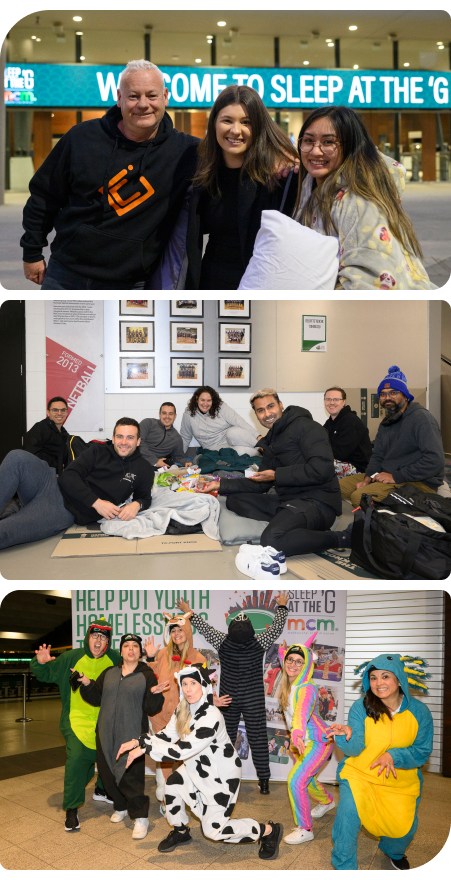
At a Glance:
$780,000
853
20%
of the sleepers aged 18-26
47%
of the sleepers aged 27-42
28%
of the sleepers aged 43-58
129
8,191
94%
Financials
Statement of profit or loss and other comprehensive income
For the year ended 30 June 2023
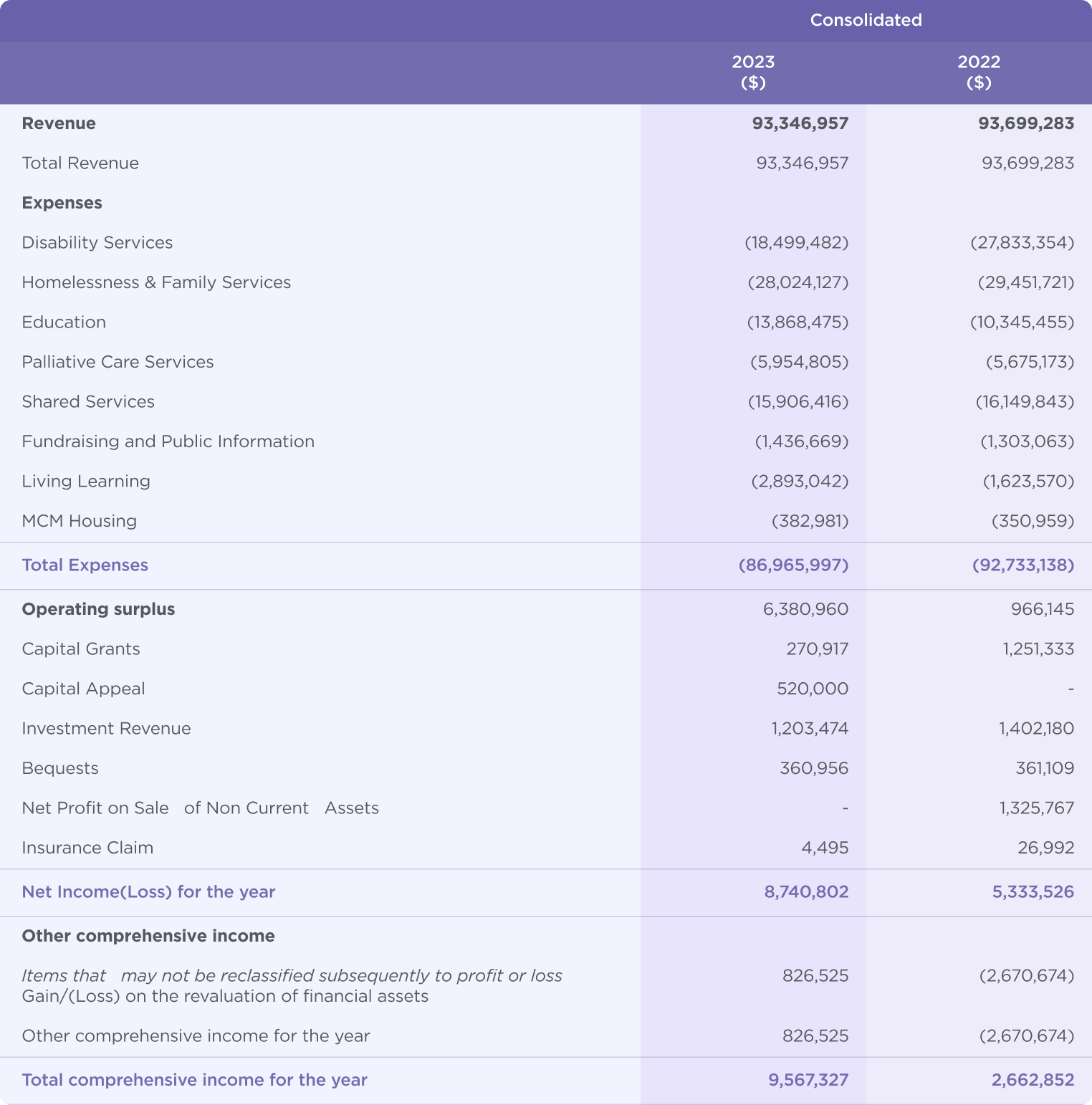
Statement of financial position
As at 30 June 2023
